
Saturday, March 29, 2025



Saturday, March 29, 2025

All You Need To Know... from choosing an insurance agent, kitchen remodeling company, financial planner, chiropractor, best cuts of meat, tire shop, and much much more!

Getting engaged is one of life’s most exciting moments, but it can also feel overwhelming. At Venier Jewelers in Dixon, we’ve helped countless couples find the perfect ring and create unforgettable proposals. Here’s your step-by-step guide to making your engagement truly special.
Step 1: Know Your Partner’s Style
Before you start shopping for a ring, pay attention to your partner’s jewelry preferences. Do they prefer classic, vintage, or modern designs? Are they drawn to white gold, yellow gold, or platinum? If you’re unsure, consider asking close friends or family for insight.
Step 2: Set a Budget
Engagement rings come in a wide range of prices. Determine what you’re comfortable spending and remember—at Venier Jewelers, we offer stunning rings at every price point, along with financing options to make your dream proposal a reality.
Step 3: Choose the Perfect Ring
Visit our shop in Dixon, where our knowledgeable jewelers will guide you through selecting the perfect diamond and setting. Whether you want a traditional solitaire, a dazzling halo, or a custom-designed ring, we’ll help you find the perfect

match for your love story.
Step 4: Plan the Proposal
A meaningful proposal doesn’t have to be elaborate—just personal. Consider a location that’s special to both of you, such as where you first met or your favorite spot in town. Whether you want a private moment or a grand gesture, make it true to your relationship.
Step 5: Get the Right Ring Size
If you don’t know your partner’s
ring size, borrow one of their existing rings (from their right hand) or enlist the help of a friend. If needed, Venier Jewelers offers complimentary resizing after the proposal.
Step 6: Pop the Question!
When the moment comes, speak from the heart. Whether you have a prepared speech or simply express your love, the sincerity of the moment is what truly matters.
Step 7: Celebrate Together
After the “yes,” take time to enjoy the moment before diving into wedding planning. Share the news with family and friends, and bring your fiancée back to Venier Jewelers for any needed ring adjustments or wedding band shopping.
At Venier Jewelers, we’re honored to be part of your love story. Stop by our store in Dixon to find the perfect ring and let us help make your engagement unforgettable.

If you have a large lawn or substantial piece of property to take care of, you’ll need the right equipment to not only mow and seed but carry supplies and tow attachments.
Zero Turn Mowers are the upgrade you need to navigate the terrain with the power and capability to maintain your land. These workhorses make quick work of taming acres of land.
Choosing the right Zero Turn Mower depends on several factors, such as the size of your property, towing capacity and, of course, price.
Here’s some guidance to help you pick the right tractor for your needs.
The right fit
Zero Turn Mowers come in a variety of capabilities and price points which can range from $2,399 for a simple, basic model to $10,000 or more for a fully-featured, commercial-grade unit. In between, you will find a vast mixture of features and quality.
Select the right model by asking yourself how you will use the Zero Turn Mower. Lawn size is an important factor to consider. For a bigger lawn, you may need a wider mowing deck. Do you have any other planned uses for your tractor such as hauling garden supplies and bagging leaves.
High-end Zero Turn Mowers are more like pieces of farm equipment than traditional ride-on mowers.

You can purchase accessories for them, such as baggers, trailers, and pull behind accessories.
You are not only buying a lawn mower. These mowers are platforms that can be used for all kinds of jobs. So check on the accessories that come with each model, even if you don’t plan on purchasing them yet. You may appreciate the choices in the future.
Most people want to finish the job in the least amount of time.
While it is true that large mowing decks will cover more ground with each pass, there are other things to consider as well.
The transmission and speed is also a factor.
The zero-turn mower is a popular option. These vehicles can turn quickly and precisely to cut lawns of all sizes and shapes.
While they have been used for years by commercial lawn crews, only recently have these mowers become affordable for the average homeowner.
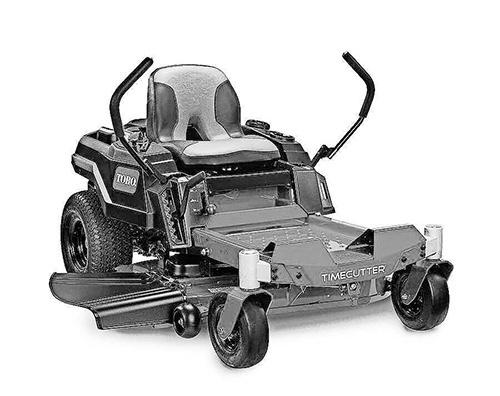
Zero-turn mowers are particularly useful when mowing close to homes, playground equipment and other tight areas.
The longevity of your Zero Turn Mower is also an important consideration.
The brand’s reputation should weigh heavily when you are making a decision. Research consumer reviews and talk to your friends and family members about the best brands of lawn products.
Also, visiting a retail store and talking to knowledgeable salespeople will also help you.
There are plenty of low-end, affordable zero turn mowers out there, but few have a reputation for durability. It is economical in the long run to choose a well-built model from a reputable manufacturer. Inspect the construction of each lawn mower carefully to verify that it will meet your needs. While you probably don’t need the extreme engineering and high price of a commercial-grade model, you ought to buy the best model you can afford and follow the maintenance directions closely. It will help you get the most usage for your money.
Finding a good dealer is an essential part of the process. When you locate an experienced local retailer with a long track record of happy customers, you will be well on your way to selecting the right Zero Turn Mower for you.
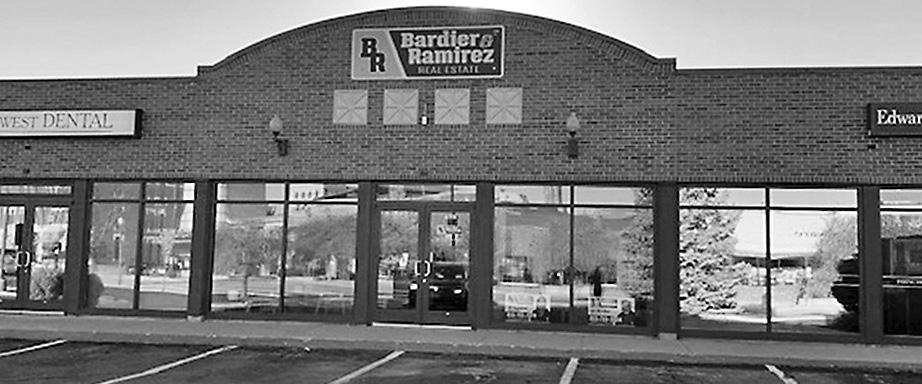
Buying and selling a home is such a major decision. Finding the right agency to help you is a balance between experience and chemistry.
When ready to purchase a home, choose an agency that is familiar with local home values and has an understanding of the neighborhoods that interest you.
Finding a reliable, reputable agent is essential. They will guide you through complicated negotiations and contracts.
Bardier & Ramirez Real Estate in Sterling has agents of 3 generations with plenty of experience among them. Lee Bardier and Deb Proctor are Baby Boomers, Jill Ramirez is part of Generation X and Korinna Cooper is a Millennial. One thing they all have in common is a
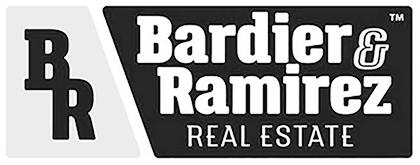
desire to find the right home for their clients. Honesty, trust, and integrity build and create life-long clients.
It is important that an agent is accessible, replies quickly and communicates often.
Jill Ramirez continues to help many of the Hispanic clients, as she is bi-lingual and makes the buying process easily understandable.
When selling your home choose an agency that concentrates on selling homes similar to yours.
Marketing strategy and an advertising plan will greatly influence the sale of your home.
Be prepared to ask an agency the following questions if you are selling your home:
• How will you advertise my home?
• How many pictures of my home will appear online?
• On which sites will my home be featured?
• Do you have other homes that have recently sold in this price range?
• How long has the agency been selling homes in my neighborhood?
• What makes your agency unique?
The two biggest financial decisions you will make in your lifetime are buying and selling a home. Protect your investment and peace of mind by choosing the best and most trustworthy real estate agency you can find.






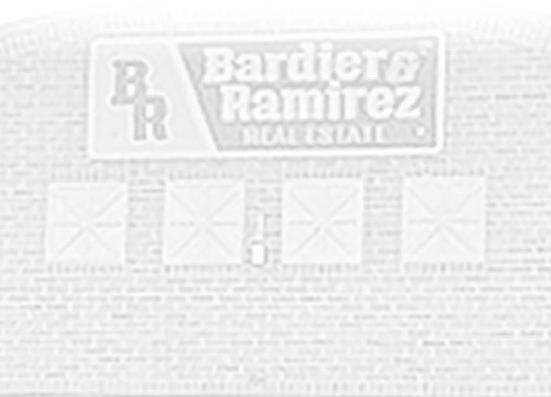

It’s been a clear trend that Americans are striving to be healthier—embracing exercise, nutritious food, and paying closer attention to how they feel and look.
That’s one reason why medical spas have seen such growth. These specialized clinics offer certain medical treatments alongside cosmetic and wellness-focused, anti-aging therapies in a relaxing, spa-like environment.
Whether you need physical therapy or are looking to smooth wrinkles and rejuvenate your skin without taking significant time off work, a medical spa could be a helpful option.
Here are some things to look for when choosing a medical spa:
Atmosphere
Traditional medical clinics can sometimes feel sterile and uninviting. Medical spas, however, are designed with comfort in mind.
The best ones offer a relaxing, rejuvenating environment—like a sanctuary where guests can escape daily stress. Everything from the scents and sounds to the linens and décor should be thoughtfully chosen to put you at ease.
Healthcare Providers
Medical spas are typically affiliated with a fully licensed healthcare provider or medical practice, just like a standard clinic. But how the provider is involved can vary, so it’s worth asking about their background and role at the spa.
Regulations differ from state to state, and many states don’t require
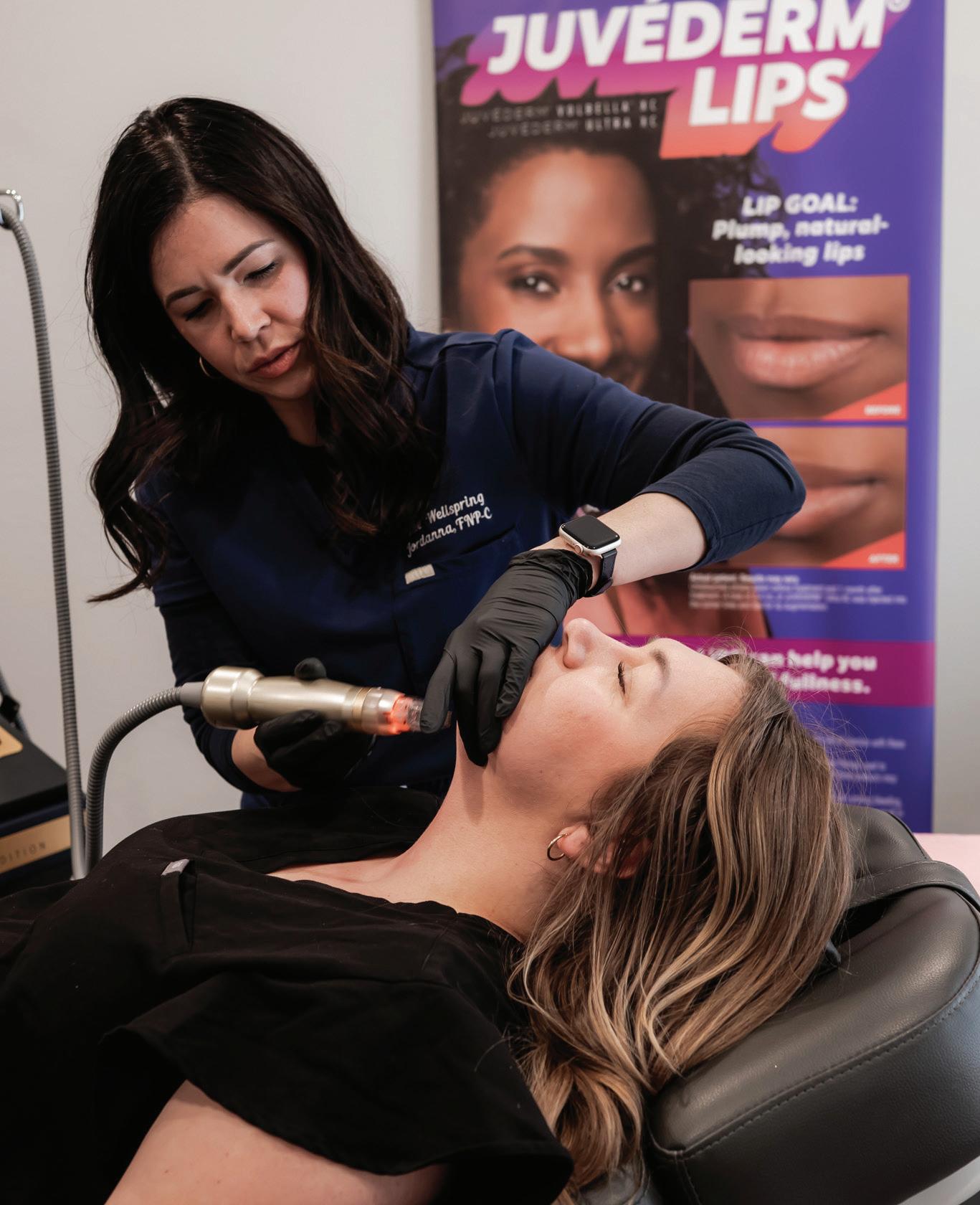
a full-time provider to be on site. If you’re undergoing a medical procedure rather than a spa treatment, it’s important to know who will be performing it and what their training and experience are.
In the rare event that something goes wrong, it’s essential to have properly trained medical professionals on hand. While the setting may feel like a spa, treatments should be taken just as seriously as any clinical procedure.
You can also check a provider’s certifications. Organizations like

the American Medical Association or the American Academy of Dermatology offer online databases where patients can verify credentials.
Most medical spas offer services like Botox injections, facial peels, dermal fillers, laser hair removal, microdermabrasion, and leg vein procedures.
Ask what treatments are available and get a recommendation from a qualified provider before moving forward. A provider should
clearly explain the expected results, how often treatments should be repeated, and who will be performing them.
Some treatments may be handled by the provider directly, while others may be done by trained staff under their supervision. Be sure to ask and understand who will be involved in your care.
Find the right medical spa, and you’ll see why they’ve become so popular—they help you look and feel your best, all in a comfortable, luxurious setting.


If you’re planning any sort of sale that features large quantities of items, whether it’s livestock, furniture or vehicles, you might find yourself in the market for a quality auctioneer.
The right auctioneer can be the key to hearing that magic word: Sold! If you are selling off an estate or raising money for a good cause, this is especially important.
Auctions are mutually beneficial for participants and the host. They’re also fun and a great way to make a healthy profit.
Choosing the right auctioneer can be a challenge in itself. Auctioneers are specialists and you want to be sure find the right one to fit your needs. Make sure the auctioneer you choose can sell your high end property on a online auction. For example, if you’re having an estate sale with a loved one’s valuables and antiques, you probably wouldn’t get the best results with a commercial or business auctioneer.
Auctions are personality-driven events, so be sure you select an auctioneer who is gregarious and personable. This person must have the gift of speech, a touch of humor and the ability to develop a rapport with the audience.
The success of your auction will depend on how much the auction-

eer can establish a relationship with the audience. The auctioneer will show your products off in the best light and entice participants to bid. If they have been in business for a while, they will likely have a following that will come to your auction just because of the auctioneer’s reputation.
tors with well-honed skills and years of experience getting results for clients.
es, contact the National Auctioneers Association or visit its website at www.auctioneers.org. Many auctioneers belong to professional organizations such as the Certified Auctioneers Institute or CAI. Auctioneers with this certification are held to a higher standard of integrity.
Sometimes a well-known person can also draw people to your event. Your potential auctioneer should undergo some training in the overall auction process. There are often logistics that must be explained beforehand.
When speaking to candidates, be sure to ask for references and work history. Verify licensing and check that they are actively working auction events.
Look for an auctioneer at your local auction house. The best auctioneers are independent contrac-


Use the internet or your local newspaper to find a qualified auctioneer. Most newspapers have an auction section in their advertising section. If you use the internet, be sure to visit the website of a certified institution. Not every site lists credentialed auctioneers.
If you’ve exhausted these sourc-

Once you have a list of finalists, attend an auction and watch them perform. Pay attention to how they handle attendees and the pacing of the event. Take notes on each auctioneer. Once you have narrowed your list to one or two candidates, perform a background check and obtain reliable references.
Then sit back, relax and enjoy the show. Know that your goods will be professionally described and displayed and more often than not, sold for the highest price possible. The auctioneer you choose will make sure of this.
Since opening our doors in 1902, Farmers National Bank has been committed to serving our communities with personalized banking solutions. Over the years, we have grown and adapted to meet the evolving needs of our customers, and in 2024, we proudly expanded to a fourth branch in Mount Carroll, IL. While our footprint continues to grow, our values remain firmly rooted in what has always set us apart: local decision-making, personal service, and a deep investment in our communities.
At Farmers National Bank, we are more than just an agricultural bank. While agriculture remains a vital part of our business, our services extend far beyond farming. We offer a full range of financial products, including residential and commercial loans, checking and savings accounts, and cutting-edge digital banking services. Every one of our locations is equipped with Interactive Teller Machines (ITMs), ensuring that customers have access to convenient banking options while still experiencing the personal service they have come to expect from us. Additionally, we offer in-house wealth management services, providing personalized financial planning and investment strategies to help our customers secure their future.
Our growth has never come at the expense of our commitment to our customers. Unlike large corporate banks, we remain locally owned and managed, ensuring that every decision is made with the best interest of our communities in mind. As we expand, we continue to prioritize the relationships we build with our customers, reinforcing that we are, and always be, “A Real Community Bank.”
With over a century of experience and a strong foundation of service, we look forward to continuing to grow while staying true to what has

always made us unique. Whether you need a farm or home loan, business financing, wealth management, or the latest in digital banking, Farmers National Bank is here to serve you-just as we have been since 1902.
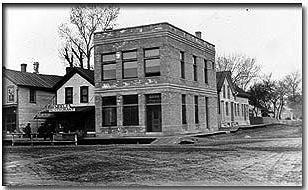
Here are a few things to consider when finding the right bank.
Banks want to be competitive. One way they entice new customers is by offering handsome interest rates. It’s not uncommon for savings account interest rates to vary widely, but the majority of institutions make adjustments according to changes in the federal funds rate.
When substantial deposit amounts are involved, the difference a few percentage points on an interest rate makes can be significant. Use online resources and shop around for the best rates in your area.
Banks are also notorious for charging fees for
certain transactions. A checking account may only allow a certain number of checks to be written each month before a fee is assessed, or maybe a minimum balance is required to keep the account active. Some banks offer free checking. But you should make sure that the free checking is really free. There may be stipulations such as being required to keep a minimum balance in the account at all times.
Look at a fee schedule to determine if it is acceptable to you.
We all make mistakes. Accidental overdrafts happen occasionally. Each financial institution has a different policy about these matters.
Many banks offer overdraft coverage in the form of a high-interest credit line. Other banks charge fees each time an overdraft occurs.
Other banks provide no coverage. Be sure to research overdraft policies before making a final decision.

Whether you’re looking for a great place to play on your own, or in a group, choosing an excellent golf course will enhance your game and make the experience memorable and enjoyable. If you are looking for a great golf course, you have many options. With enough research, you can find a location that will stretch your skills without breaking your budget. Deer Valley Golf Course , voted the Sauk Valley Area’s #1 Golf Course, offers a variety of memberships—Full Platinum, Pay as You Play Gold and Silver memberships.
The course itself is the top factor for any serious golfer. The ideal course should be difficult enough to challenge you. The best courses match the natural surroundings. They will provide a beautiful backdrop to put you in the right frame of mind. Sometimes, the most memorable experience comes from playing in extraordinary settings. This 18-hole golf course with mature landscape and rolling hills offers both a challenging experience as well as a course for the novice golfer. This par 72 track has 4 sets of tees to accommodate every skill level.
Every course offers a list of services that will make your visit more enjoyable. Take advantage of all the


services that might be offered. Most facilities know that a golf course is an excellent escape from daily life and they want you to feel welcome and appreciated.
At this course you will experience a relaxed and comfortable atmosphere with a full bar and a snack bar for food that includes burgers, brats, hot dogs, chips and snacks. In the summer, we offer weekend grilling hours and also a
Friday night golf league with dinner. There are also gaming machines available for entertainment after the round.
Often courses will also offer banquet facilities for many social events. This course has a stunning, full service venue, featuring a spacious ballroom with seating up to 400.
Many golf courses offer lessons on site. Check with your course
of choice to see if this amenity is available.
For the competitive golfer, ask about tournaments that will challenge your game and add an element of fun. This course has monthly tournaments for members as well as daily green fee patrons.
The best golf courses have gorgeous settings, excellent amenities and exceptional service, as well as the challenging course.
Many courses also offer private play days and outings for organizations to use as fundraisers, employee appreciation or even family gatherings. These outings can be organized as team scrambles or individual rounds and can include food provided by the course. Inquire at 815-438-4653 to schedule your event.
In closing, the best courses have gorgeous settings, excellent service and a layout that can be as challenging or easy as the golfer wants based on the tees that are played. A course with reasonable fees and memberships can also provide great value to a family or individual looking to spend their leisure time in a peaceful, enjoyable environment. Shop around and discover what courses are the best fit for your needs.



Choosing to install a solar photovoltaic (PV) system can be the best investment you’ve ever made – but it can also be very expensive, so selecting the right solar company to work with is an important decision. Solar equipment is built and warrantied to last 25-years on average, so going solar is a long-term commitment, which is all the more reason you want a solar company you can trust and have a lifelong relationship with over the life of your solar PV system.
In a fast-growing industry like solar energy, it’s especially important to know the reputation of the company you’re dealing with. Out of state or new companies might be showing up in the marketplace, but that doesn’t mean they’ll necessarily offer the best service or be around long enough to support their product line years from now.
Look for stability in your solar installer. You’ll want to find a company that has developed a great reputation over a number of years with a long track record of satisfied customers. If possible, request the solar company provides you a customer or two they have already serviced with a solar PV system similar to the one you plan to have installed. Hearing directly from customers of the company is the best way to see how that solar company interacts and services their customers.
There are a wide range of solar PV systems on the market, and the technology itself is going to be a big part of your decision. Your solar PV

system can be tied to the existing electrical grid (also known as gridtied) or tied to a battery system to be off grid. Be aware, the equipment for these two types of system connections differs and will also be reflected in the price of your solar PV system and the equipment associated.
Some solar PV systems generate power more efficiently than others, depending on their design and the type of materials used to make up the system. Be sure to ask questions such as if the solar PV system has power optimizers or remote monitoring capability to ensure the system is producing energy to it’s full potential. These added solar components might be what sets the prices apart when comparing bids, but the overall return on investment of the system will be met sooner when the solar PV system is generating more efficiently to offset your power bill costs.
When considering a solar company, ask them about the warranty

spans on the solar equipment they install. A majority of solar equipment has a 25-year warranty, meaning you will be investing in a longterm solar PV system. In addition, ask what type of workmanship warranty the solar company offers.
Overall, look closely at the math, and pick the solar PV system that gives you the best return for your money. Many systems will pay for themselves over a number of years, so choosing one to be installed by a well-regarded company can be a wise financial move.
Homeowners and business owners will often want more than just solar panels installed; such as a battery back-up system or electric vehicle (EV) charging station that can be tied into the existing solar PV system. It is important to choose a solar company that has a wide range of services such as these.
With technology ever changing, EV are becoming more and more
common, so to have the ability to pair your solar PV system with an EV charging station is a huge bonus. A common myth is that solar energy systems mean you will have power even when the grid is down. This is not true unless you have a battery back-up system paired with your solar PV system. Battery backup systems are great for those who want the capability to be off-grid, but take into consideration the price of these systems when you compare bids. Battery back-up systems can be installed after an existing solar PV system has installed, so if you decide not to do it now, you can still do it down the road.
The solar company should be familiar with all of the state and federal incentives available to you, and be able to provide you with all of these details. State incentives vary from state-to-state, so depending where you live, they should be able to share what incentives apply to you. Your solar PV system could be eligible for the federal incentive called the Investment Tax Credit (ITC), which is a tax credit in the amount of 30% of your solar PV system cost. It is encouraged to consult your financial advisor or tax preparer to verify if you qualify for the ITC.
Depending where you are located, you could be eligible for utility net-metering. Your solar company should be fully educated on net-metering and be able to tell you if this great incentive applies to you.










It’s no secret there are far fewer travel agents around now than 20 or even 10 years ago and although the popularity of booking travel online had tried to decimate this career field, using a professional travel designer is now the hottest new thing that never went away! In early 2020, when the coronavirus pandemic forced the closures of international borders and stay-at-home orders became the norm, many travelers were left scrambling. Along with expensive rebooking and cancellation fees, travelers were faced with long lines at airports and even longer wait times with customer service representatives. But for consumers who had employed a travel agent, or travel advisor/designer, to book their trips, it was a different story. They were busy securing flights without change fees; negotiating future travel credits; doing the legwork on behalf of their clients to avoid them having to pay anything more. This unfortunately was not always the case for those who had booked with popular on-line travel companies, some even shut their phones off or their clients were left for hours on hold fending for themselves. It was proven that during the COVID—19 pandemic, having the backing of a professional travel designer was a must.
Here’s how to find a good travel agent:
Eleven states require travel agents to be state-licensed. Many of these states only require the

agency to have a license and pay a fee. These stipulations offer no real protection for travelers. There are some other ways you can discover if a travel agent is competent, knowledgeable, and honest. First of all, find out if the agency is a member of the American Society of Travel Agents or the Association of Retail Travel Agents. Using an ASTA-affiliated member means you are working with someone who has been vetted and follows the organization’s code of ethics, which can be important should you need a dispute or complaint resolved.
Many are also certified through the Travel Institute, which accredits agents based on their expertise. With many consumers turning to social media, finding a professional travel designer can still be a confusing maze.
Always take care when handing over your hard-earned cash, just because you see a travel company’s Facebook page and pretty pictures, does not mean that they are a professional travel agency or advisor.

So many options nowadays; you have on-line agencies, home based agencies, store front agencies. As a rule, most travel agents are welltrained, competent professionals who work hard for you. But taking the time to look at or ask about their credentials, certifications or ask whether the agent or agency is licensed, can save you a headache down the line
A competent travel designer can be a great asset. Certified travel professionals have an edge over the digital world. They work for you to ensure you have the best deal and back up their bookings with personal service that can’t be achieved when booking online by yourself. Travel designers are professionals who know every trick in the book when it comes to ensuring a trip will go smoothly. For a fee, these agents will plan every aspect of your vacation, leaving it up to you only to relax. Best of all, if something goes wrong your agent will be a phone call away with a fix...
Choosing one is no different

than choosing a doctor or lawyer. Get advice from friends and relatives who use an advisor they trust. Since travel choices are personal decisions that reflect individual desires and lifestyles, you will want to visit or call several travel agencies to find the one that best suits your needs. Consider everything from the appearance of the office to the travel advisor’s willingness to listen and answer questions. The best advisors want to establish a longterm relationship with a client, not just make one sale.
Destinations Travel Services have ALL the above listed credentials and licenses, and this is why you should always book with a Professional Travel Advisor. They are not a call center - they are your personal travel advocate. They don’t work for the cruise lines, resorts, or airlines, they work for you!
When you find a great travel agent.
If you have found the world’s best travel agent right in your neighborhood, throw her all your business. You will not do better anywhere else. She can see everything the booking engines can see, and sometimes more. She will make a living, you’ll become a preferred customer and the world will be a better place
Using a professional travel advisor will make any good vacation GREAT!

Decks have traditionally been built out of wood, a material that is inexpensive but has major downsides: it’s prone to rotting, warping and splintering, and requires pricey and labor-intensive maintenance through the years.
Composite decking solves all these problems. Building with these manmade materials offers longevity and durability at an affordable cost. But that wasn’t always the case. Composite decks were introduced in the 1990s, were made of plastic and had limited color options. These days, manufacturers produce a wide range of products that are designed from recycled wood particles and a plastic material that binds the wood together.
It’s good for the environment and has created a billion-dollar industry.
Here are some things to consider when choosing composite decking.
One of the first things to weigh is how much you plan to spend on the project. Just like any construction materials, composite decking is available in a range of price points with different looks and installation requirements.
At the more affordable end of the spectrum are decking products with a limited palette of colors and a simpler, more repetitive grain pattern on their surface. They’ll typically be attached with screws through the face of the board.
With a larger budget, you’ll have
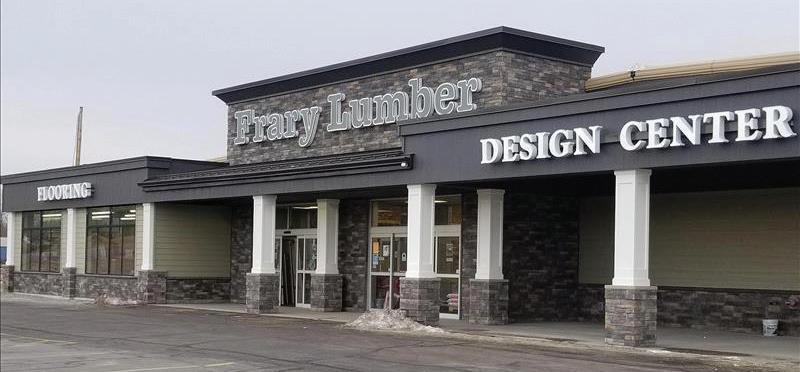
more choices of colors and textures available. You also could consider decking that attaches from the bottom using special hardware. The hidden hardware gives your deck a cleaner, more perfect look, but it’s usually more expensive.
If your deck is located in a place that gets a lot of hot, direct sunlight in the summer, you’ll probably want to pick a material with a lighter color. Just like a dark-colored car in the summer, dark decking tends to absorb the heat. Some materials can get hot enough to burn your bare feet.
It’s a good idea to get sample materials of decking you’re considering. You can lay it out in the sunshine to feel just how much heat it absorbs and reflects during the day.
If you’re wanting a deck that looks like it’s made from natural wood, pay close attention to the color, finish and texture of the material you’re choosing.
In general, cheaper composite decking materials look smoother and more plastic in appearance. They may be completely uniform in color with a shiny sheen, something that makes it look very obviously like a man-made material.
The best composite decking looks more like wood, which means every piece is unique. They’ll have subtle differences in shades, textures and grains along with special finishing at the factory to remove the plastic sheen.
If you live in an area that gets a lot of rainfall, it’s important that the surface doesn’t get very slippery when wet.
Some composite decking, especially the versions with a very smooth surface, can be prone to getting slippery after rain. Again, samples of the material will help you feel just how slick the surface will get when it’s not dry.
Since any deck project involves a lot more than the decking material alone, consider the cost of any extra materials that will be required to complete your project.
There are two areas to look at carefully: fasteners and trim.
For exposed screws or nails, you want to make sure you use a product that is specifically designed for outdoor use. Using the wrong screws on the face of the decking can result in ugly rust spots or a shorter life of your deck as they break down in the weather.
You also may want to consider different kinds of hidden fasteners to keep the hardware from being visible. This gives your deck a clean look but can add considerable cost to the project.
Finally, the railing and trim pieces need to coordinate with your deck. Pricing the entire project, including stairs, rails and caps, will give you a truer picture of what to expect in terms of construction costs.
The last thing you need to know is whether all the materials and your overall deck design meet your local building codes.
Talk with the building officials in your city to see what permits and inspections may be required for your project. Many municipalities regulate the footing depth, materials and location of your deck, including setback distances from utilities or property lines.































With Americans living longer than ever, the need for assisted living/sheltered care centers has also grown and the industry has responded. But because the type of care seniors require varies, finding the proper facility means locating a balance between appropriate levels of care, comfort and access.
In the past, long-term care could only be handled by a nursing home. Living in a hospital setting for an extended time was not a pleasant environment. Times have changed dramatically. In addition to on-site medical care, many assisted living/ sheltered care centers can appear more like upscale apartments, offering dining, travel, activities and personal freedoms.
But not all assisted living/sheltered care centers are alike. The decision to place a relative into such an environment warrants close scrutiny and research.
Ask your loved one’s personal physician how much care is required to function safely. The doctor may even be able to guide you toward an appropriate facility. Be sure to seek advice on what qualifications and certifications you need to look for in the center’s staff. The center’s employees should be well-qualified to handle medical needs.
If you monitor medical care, you can avoid paying for extensive services that your loved one may not need. Understanding the care the person requires will help you find a

Accommodations at these centers can range from luxurious, detached cottages to cozy condominiums or smaller apartment-style rooms. It all depends on what you are looking for, what you can afford, and what is available.
As you visit the facilities, try to personalize each space. Imagine how your loved one’s belongings might fit into the area and where
will be placed. Does the atmosphere bring about a feeling of peace and tranquility? How are the rooms decorated? Are they tasteful and soothing, or do they remind you of a hospital setting?
Look at the home amenities and consider how you would feel about living there. Would you want your loved one living there? Is the facility within your budget?
and activities
Game and meeting areas can
help the resident make new friends and keep them from feeling alone and lonely. Leaving the confines of their units is an important part of improving quality of life. Make sure the center offers activities and space to occupy your loved one’s time.
Quality facilities will have activities that match his or her hobbies. If your family member enjoys crafts, then look for a center with a designated craft area or classes for your loved one to enjoy.
The landscaping of an assisted living/sheltered care center can give you a good indication about the quality of the facility. A well-maintained lawn and garden is a positive sign.
If the prospective resident enjoys spending time in nature, look for a facility that has park-like areas. Some centers have community-style gardens and walkways for residents.
Just being able to experience nature as it grows and changes with the seasons can be uplifting and soothing. An assisted living/sheltered care center with a manicured lawn and garden can make a huge difference in the quality of life for a loved one.
Choosing an assisted living/ sheltered care facility is about finding the right combination of medical services and amenities. With research and thought, you will find the perfect place to bring comfort and care to your loved one.








“We





Choosing an acupuncturist is unlike choosing any other health care provider. While you many know that the practice is part of Chinese medicine, beyond that an acupuncturist’s qualifications aren’t nearly as well-known as those of medical doctors or even chiropractors.
And although the practice has become more widely known and accepted, the practice of any medical care in the wrong hands can be dangerous so it pays to educate yourself before you go looking.
The Eastern medicine practice goes back as much as 5,000 years and is defined as the natural healing force uniting the universe and the body in terms of two opposing forces, the “yin” and the “yang.” By inserting small, mostly painless needles into various pressure points, the body is brought back into its proper balance.
But the value of acupuncture isn’t just an Eastern myth. For many years, Western physicians have confirmed that acupuncture can help relieve chronic pain, migraine headaches, fibromyalgia and osteoarthritis-related symptoms, among other stresses. Researchers also believe it’s valuable in the treatment of post-traumatic stress, depression and anxiety, as well as control the side effects of chemotherapy.
In short, this once derided therapy now ranks among the top non-medical, non-pharmaceutical medical treatments with proven benefits.


Increasingly, most medical doctors understand their patients desire to seek alternatives to traditional methods of treatment. It is now not uncommon for physicians to recommend acupuncture as either a primary or additional treatment when confronting pain in all its forms. You may want to check with your insurance provider as well, as many companies offer coverage for selected acupuncture services.
Furthermore, if you have friends or family that have undergone the procedure, ask them about their experience and whether or not they would recommend the acupuncturist they went to.
Certification is key in choosing the right acupuncturist. It indicates
a practitioner’s level of training, skills and prior experience. A qualified acupuncturist will have all this information readily available.
A licensed practitioner may also offer other valuable health services, such as herbal medicine and cupping. These treatments are sometimes used in conjunction with acupuncture.
Key points to consider
Acupuncturists practicing in the United States must use sterile, one-time-use needles, and work in a safe and clean environment.
• Ask to see the rooms were sessions take place and make sure standard medical cleanliness practices are adhered to, such as clean hands, covered tables and properly disposed needles.
• Don’t be afraid to request a consultation, just as you would with
any healthcare provider. Acupuncture specialists should understand the concerns of prospective clients and should be willing to discuss your options ahead of time.
• Any questions you may have should be answered before booking an appointment. Your acupuncturist should be able to explain the benefits and risks of treatment. Make sure you understand what their methods are and how often you will need to come in for treatment sessions.
• Look for an acupuncturist who asks you questions as well. Traditional Chinese medicine takes into account all aspects of one’s life in order to determine the right treatment, and a skilled practitioner will ask you all manner of questions, from diet to family history to daily activities.
Some of the questions may even seem odd or invasive, but they are necessary. The acupuncturist who doesn’t make any inquiries about your health, mental well-being and personal surroundings might not be the best choice.
Acupuncture in itself may be beneficial to many because when performed properly it is safe, has few if any side effects and can be effectively combined with traditional medicine.
As the ancient Chinese might advise, choose wisely and with all these questions in mind and you may find yourself surprised at its benefits.



Working with a professional financial advisor could be the best investment you’ll ever make. The best planners can help you meet your financial goals now and in the future, bringing into play an experienced, objective perspective to advise you on how best to save, invest and spend your money. They can also suggest avenues of money management that hadn’t occurred to you, help lower your taxes and guide you through uncertain financial times.
To find a reliable financial advisor, start by asking your social network. Friends and family may have some suggestions.
Research online for advisors in your area. Your local newspaper will likely have advertisements for local advisors. Remember to research each advisor with an eye toward your own situation and goals. Once you have a list of three or four possibilities; look closer at each choice. It might be a good idea to pick a financial advisor who is a certified financial planner. A certified financial planner has passed rigorous exams in order to obtain a certificate.
Once you have discovered each advisor’s qualifications, contact the certifying organizations to find out if there have been any complaints against each professional. If so, find out how the complaints were resolved.
You can request a list of satisfied clients who have goals comparable to yours. Contact them to talk about their experiences.
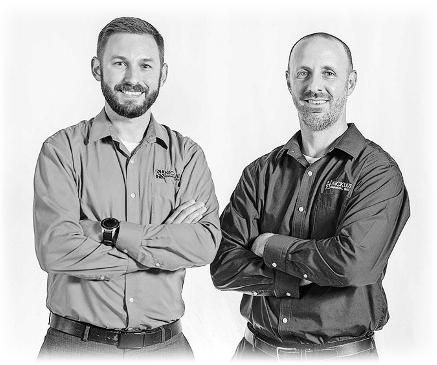

Financial products can contribute to your well-being and peace of mind. Some common investing tools include bonds, mutual funds, stocks and commodities.
Weighing risk is essential. Some products will undoubtedly be better for your portfolio than others. An experienced financial advisor can customize a portfolio especially for you.
You can also do some research to find a segment of the market that might be a good fit for your situation. Then look for an advisor who specializes in that investment. For example, if you want to invest in commodities, your potential advisor should have some experience in that market.
Success rates will also play a prominent role in your decision. Look at the rate of success for each advisor. Has the rate of return on
his recommendations outpaced the average market rate of return over time? An advisor with a solid rate of return conducts research to strengthen his clients’ portfolios.
During tough or stagnant economic times, experience will play a vital role. Has your advisor weathered previous economic slowdowns? Do clients thrive in bleak environments? Or have clients taken multiple hits to their portfolios?
You should be wary if clients appear to be doing too good during tough times. Someone with an extraordinary success rate might be too good to be true.
Inquire about how your advisor is paid for services. Most offer fee-based or commission-based services. It will greatly influence your selection. A commission-based advisor is prone to suggesting financial products that offer a professional commission. It could needlessly in-

crease your exposure to risk. Only use a commission-based advisor if he or she has a proven track record of success and also has your best interest in mind.
When you need someone who puts your best interests first, go with a fee-based advisor. He or she will be compensated only for the time spent on serving your portfolio.
Once you have narrowed your prospects to two or three possibilities, schedule a meeting with each professional. During this consultation, communicate your goals honestly and clearly. A financial planner should be someone who will guide and inform you. He or she will continually increase your knowledge about your current financial situation and how to improve it. Put it in writing
Once you have narrowed your list to one or two advisors; ask each to write a plan for moving you from where you are to where you want to be. Get a written copy of this proposal.
This document should have your short-term and long-term goals, and also state who else will profit from the proposal. This plan should be written clearly so you completely understand it. Once everything has been completed to your satisfaction, you can choose a financial advisor. Then you can comfortably relax and know that your money and future are in good hands.

We all have sensitive personal documents containing valuable information, but over time much of that paperwork becomes obsolete. If you own or run a business, that trove of financial and personal documents quickly piles up, and disposing of it thoroughly and securely becomes a priority.
Confidentiality is important, particularly for businesses in competitive industries. That’s why a good shredding service can be a major help in keeping fraudsters and potential spies from viewing your business documents.
Some businesses handle their business documents by throwing them in a public trash receptacle or using a compact shredder. These options are not reliable. A compact shredder breaks easily and is also cumbersome to manage.
Shredding services will handle confidential paperwork easily and efficiently.
Medical professionals, attorneys and banks are particularly in need of shredding services. If sensitive, confidential information is leaked, your business could be legally liable.
Why risk a lawsuit? A good document shredding service will help you avoid the hassle and scare of being vulnerable to lawsuits and crime.
Trust and security
Trust is the key word when looking for a document shredding company. After all, they will be

handling your confidential papers.
Ask other area businesses which shredding company they use. Getting a good recommendation from a fellow business owner is a great way to guarantee your satisfaction with a shredding company.
Look for a company with a long track record. The more experience they have, the better service they can provide.
Inquire about their method of destruction. It is a key consideration, as you need to be certain these documents are handled with great care.

Some services use a mobile document shredder for added security. They will bring the shredders to your business, which eliminates the possibility of some sensitive documents leaking to competitors. It provides an exceptional level of security.
If you are comfortable with using an off-site service, ask for references before determining if they have a high level of security.
Ask how and where waste is disposed. If your company values environmentally-friendly products, using a document shredding ser -
vice that recycles can be a fantastic choice.
Choose a company that is certified through the National Association of Information Destruction.
Proper certification means your documents will be handled with the utmost professionalism. A certified service takes superior precautions so that your documents will not wind up in criminal hands.
When interviewing service companies, ask about liability insurance. You need to know that your business is protected in the event something happens while your records and documents are being transported.
Take your budget into consideration. Ask for written quotes from several companies. Comparing these prices and service details will help you understand what you are paying ahead of time.
When choosing a document shredding service, always consider confidentiality and safety first. The lowest price quote will not always be the best. Remember, the reputation of your company is at stake. Select a company that makes you feel comfortable. It will leave you and your company feeling more secure and satisfied.
Don’t take chances with your company or personal identity. With identity theft growing daily, you need to take every precaution to protect yourself and your business.
Funeral planning is not the most pleasant subject, but it makes sense to consider options whether you are facing such a decision about a loved one or want to ensure your own funeral follows your wishes.
More frequently, people are choosing cremation. In fact, more than half of Americans chose cremation over traditional burials in recent years, according to the National Funeral Director’s Association.
The reasons are numerous. Among them, cremation is cheaper than a traditional funeral and it has become more acceptable to the baby boom generation and those who are younger. And it is important to note that most cremations are also part of a memorial service or viewing.
Still, making the decision between a traditional burial and cremation requires many factors beyond simply the cost.
First and foremost are the wishes of your loved one. So if they’ve opted for cremation, or if they have no preference, cremation may be the most cost-effective way to achieve both.
Making decisions in advance about cremation services can take the burden off loved ones during a painful time. Otherwise, they will need to make tough choices while stressed and grieving.
With cremation, the family doesn’t have to purchase an expensive casket. Loved ones may spend more money than they can afford in

an effort to respect the memory of the deceased.
But a cremation service is an affordable way to respectfully memorialize a friend or family member. The service can be a peaceful time to grieve and remember.

A funeral home may have a partnership or connection with a cremation center. They may have additional services, such as grief counseling or assistance with necessary paperwork.
After the cremation, you will
receive an urn. You can choose to bury the urn, keep it in your home or place it in a memorial building.
When searching for a cremation center, check with your family or friends for referrals. If you cannot get an appropriate referral, you might be able to join a cremation society. For a small fee, you will receive up-to-date information about your options and the process. Membership may also help you obtain a lower-cost on cremation services. These societies will provide assistance with many details connected to the service and disposition of remains.
The Internet Cremation Society and the Cremation Society of North America are sources of information about cremation societies.
Once you have narrowed your choices, consider how you feel about the staff of the cremation center. You should feel comfortable asking questions. The employees should be knowledgeable, competent and pleasant. They should give you all of the details about price breakdowns, and their process of making ashes for the urn.
By doing a little research and choosing wisely, you can make the process a little easier for loved ones during a difficult time.
Discuss with your loved ones and family members their preference for when they pass. Talk with them and explain your own so that there will not be any misunderstandings or second-guessing after the fact.




There’s no more important step than assisting a loved one who needs ongoing care for medical or mental condition in finding a quality nursing home. Some choose nursing homes to recover after a hospital stay, but most require constant care.
A nursing home can provide a comfortable living environment for your loved ones while ensuring that all of their needs are met. As an added bonus, you can rest assured knowing that quality medical care is always nearby to meet any medical emergency that may arise. You can’t put a price on peace of mind.
Placing a loved one in such a facility is never easy, but the choices can be made easier by making some basic decisions on what is important — nursing care, meals, physical therapy, a religious connection, hospice care, or special care units for dementia patients? Do you want a place close to family and friends so they can easily visit? These are all important criteria to consider.
Here are a few more things to think about if you believe someone you love could benefit from nursing home care.
Visit the facility
Take a tour of the potential facility. You should intuitively feel warmth and safety in this environment. Your visit will also provide clues about the general atmosphere and morale of the residents. There should be lots of natural light, cheerful colors, bright wall art and


hints of laughter from the staff and patients.
Focus on the cleanliness, staffing levels and the appearance of other residents. Is the air fresh and free from unpleasant odors such as urine, feces and stale food? Are there enough nurses and attendants on duty? Are residents appropriately dressed? Do they seem clean and freshly bathed?
Bring the prospective resident along for the tour. This facility may become home. Your loved one deserves to have a voice in selecting the facility. Feeling welcomed are cues that this could be a positive living experience.
Socializing is important. Are there opportunities for residents to meet each other? Regular activities such

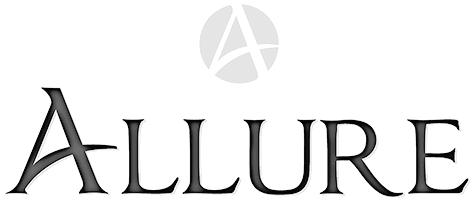
as music and crafts or an outdoor area for enjoying the sunshine will enhance quality of life.
Most nursing home facilities are happy to provide a tour of the building. Once you see the environment, ask for a consultation with a staff member. This is an opportunity for you to ask questions and address special needs of the prospective patient.
Possible questions might include availability of physical and occupational therapy, accommodation of appointments outside the facility and access to barbers and beauticians for the residents.
You might have a chance to talk with a relative of a patient who
is currently living in the nursing home. Don’t be afraid of asking them for honest opinions about the facility.
Query them about the staff and quality of care received by the residents. Solicit their input on whether you should place your own loved one in this facility.
These relatives are usually eager to share their experiences with you. Hearing their impressions will help ease your own anxieties about this important decision.
If you are still unsure about your decision, or if you have reservations about the facility, discuss the matter with your loved one’s primary care physician. This professional should also be able to recommend good nursing facilities in your area.
The doctor may suggest additional facilities not on your original list. When your loved one has special needs, the doctor will know which facility or center can best meet these requirements.
Deciding to put a family member or loved one in a nursing facility is never easy. Carefully weigh the expectations of your family member with your impressions and the recommendations of others.
This is one of life’s most difficult decisions. Taking the time and doing the research will result in a better quality of life for your loved one and peace of mind for yourself.
It is estimated that doctors of chiropractic, known as D.C.s, treat about 35 million Americans adults and children annually, according to the American Chiropractic Association. These specialists use a handson, drug-free approach to health care that is best known for spine manipulation, but they also treat many other areas with techniques that have been proven safe and effective.
So, if you have unexplained aches and pains, you may want to consult a chiropractor. These professionals can help alleviate pain in your back, head or neck. Chiropractors believe that realigning your spine will help relieve pain and discomfort in the body.
And it works for a lot of people. Many patients find immediate relief from pain before even leaving the chiropractor’s office. They report rapid improvements in their muscles, joints, bones and ligaments.
Chiropractic care can also improve your overall health. The treatments administered by chiropractors can also treat minor ailments such as headaches and sinus pain.
Thinking about the following factors can help you find the right chiropractor for your needs.
Chiropractors have some of the most stringent educational requirements in the health care industry. According to the ACA, accredited chiropractors go through at least 4,200 hours of classroom, laboratory and clinical training time combined.

Students must spend four years in a pre-medical program, in addition to four or five years of professional training.
Not only do chiropractors study the body, they usually also study the muscular skeleton, pressure points, bone and joints, and nerves. Finding a chiropractor with these studies under their belt can give you a better experience and results.
Prior to selecting a chiropractor, inquire about training and credentials. Make sure he or she is properly qualified, has a current licensee to practice, and has experience in the area you are looking for.
Many insurance carriers include

chiropractic care as part of their regular coverage.
Verify that your care will be covered. You might be offered a discount for choosing an “in-network” professional.
But if you don’t have insurance, many chiropractors offer low cash rates or affordable plans to help patients. Even without health insurance, you can still find chiropractor offering quality, cost-effective care.
Check for discounts. Some chiropractors will offer incentive discounts for groups, referrals of new clients and other promotions.
Someone in your social or profes-

sional network has likely received excellent care from a chiropractor. Ask family, friends and co-workers for referrals.
Inquire specifically about his or her demeanor and schedule. Is it easy to make an appointment? You should also find out about the chiropractor’s philosophy about health and other wellness issues. Some practitioners will suggest complementary forms of care, including massage.
Given the results it can provide, chiropractic care is still affordable and worth the money. With time and effort, you are likely to find a quality chiropractor in your area.
Researching the chiropractors in your area will help ensure you get the type of care you want and need.
Today’s senior care differs significantly from the past, and the industry’s terminology can be confusing due to the expanding range of healthcare options available. Different facilities offer different services so be sure you are comparing apples to apples. There is independent living, assisted living, short term or “skilled” rehabilitation, memory care, long-term care, and hospice care. “Senior Care” is often used as a broader term to encompass all the different types of care. Below is meant to be used only as a guide to get you started.
Assisted living (AL) facilities are focused on allowing individuals to remain as independent as possible while encouraging residents to socialize. They have “care companions” or “certified nurse’s aides” (CNA) that will help with a few “activities of daily living”. Meals are provided in most AL facilities. One example of an individual that might do well in an AL living situation is if they need assistance with a shower or getting dressed in the morning and undressed at night but are fairly independent the rest of the day. Residents living in an AL facility need to be cognizant enough to administer their own medications with a reminder \ supervision of the care companion or CNA. They also need to be able to exit the facility on their own in case of an emergency. When you are looking for the appropriate assisted living home for you or your loved one, make sure you are asking a lot of questions such as “Is there 24-hour emergency care available on-site?” There are a select few homes that are able to offer

that service. If money is an issue, there are a few assisted living facilities in the area that are licensed to take Medicaid, but they are limited.
Short-term rehabilitation or skilled care usually focuses on healing an individual or helping them to become stronger, therefore allowing for a successful return home. There may be several rehabilitation services available at the facility such as physical therapy, speech therapy, and occupational therapy, just to name a few. One example might be an individual with a hip fracture, successfully completing physical therapy services and returning home.
Most long-term care facilities today have more equipment with staff that are highly trained with aroundthe-clock care available. In the past, the care these facilities now offer would only have been available while in a hospital. Today’s fa-

cilities can accommodate care for complex physical and mental conditions, provide IV medicines, treat serious wounds, infections, etc., and are highly regulated. Most longterm care facilities take Medicaid for payment if there is no money available from the individual.
Clear as mud? No worries! Remember, your health care provider or facility can help steer you in the right direction with just a few questions.
In addition, when you are searching for a facility for a loved one, your best choices are facilities that have high scores from state agencies, such as Medicare. gov. Find out if the facility can assist you as your loved one’s health care needs change. You will not want your loved one going into an assisted living facility, just to turn around in six months and move them to a long-term care facility if
Are you 50+ years old?
Bored at home or need some socialization?
Need to get up and out of the house? Why not come join us?
Come meet new friends in our Assisted Living Wing or renew an old friendship. Bring a couple of your friends along! WIN PRIZES and have some FUN at this FREE event!
you can prevent it. Don’t hesitate to “drop in” on a facility at any time so you can get a “real look” as to what the home is like when they are not expecting you. You may want to keep in mind, however, that staff may be busy taking care of their residents and therefore, depending on the day and time, may not be able to give a detailed tour without scheduling an appointment.
Be sure to visit with current residents and their families to get a good assessment of the facility. Family members will likely provide the most unbiased and unvarnished opinion of the facility.
Most high-quality facilities are significant investments. They provide a much higher level of care and quality of care, so they cost more. You may want to ask if the facility is a not-for-profit home. Not-for-profit homes tend to invest any profits back into their home(s) and residents.
The decision to put your loved one in a particular facility is not permanent. If your family member is not receiving good care or shows signs of abuse, you have the right to remove them. Frequent visits are important so you can monitor the health and well-being of your loved one. Visit at different times of the day to verify the quality of care.
Take all the time you need when searching for a facility. Taking a loved one to a facility, while necessary, can be difficult and emotionally challenging. Finding the best one you can afford will help to give you peace of mind.
Every 3rd Wednesday of the Month at 1:30 in our Assisted Living Dining Room
Light refreshments will be served
Questions please contact Jenn at 815.772.4021 or j.waters@resthavehome.com


West Nile Virus (WNV) is a mosquito-borne disease that can cause serious illness, especially in those 60 and older, the very young, and those with a weakened immune system. Avoiding mosquito bites is the best way to prevent WNV. WNV was first found in Illinois in September of 2001 in two dead crows near Chicago. The following year, Illinois reported the state’s first human cases and deaths from West Nile disease. By the end of 2002, Illinois had counted more human cases (884) and deaths (64) than any other state in the U.S. (IDPH) WNV can cause serious illness in humans. While some infected with the virus experience mild symptoms such as slight fever, headache, or fatigue, others may experience neurological complications such as encephalitis and meningitis. Severe infections can include the rapid onset of a high fever, head and body aches, confusion, tremors, convulsions, and in some of the most severe cases, paralysis or death. Symptoms typically occur three to 15 days after exposure following the bite of an infected mosquito. (IDPH) Since there is no vaccine for WNV, prevention is the best approach for reducing your risk. Controlling the mosquito population and minimizing exposure to bites are key to prevention. Mosquitoes become carriers of WNV after feeding on the blood of infected birds. The virus does not spread through casual contact and is not spread directly from birds to people.
Practical steps on reducing your

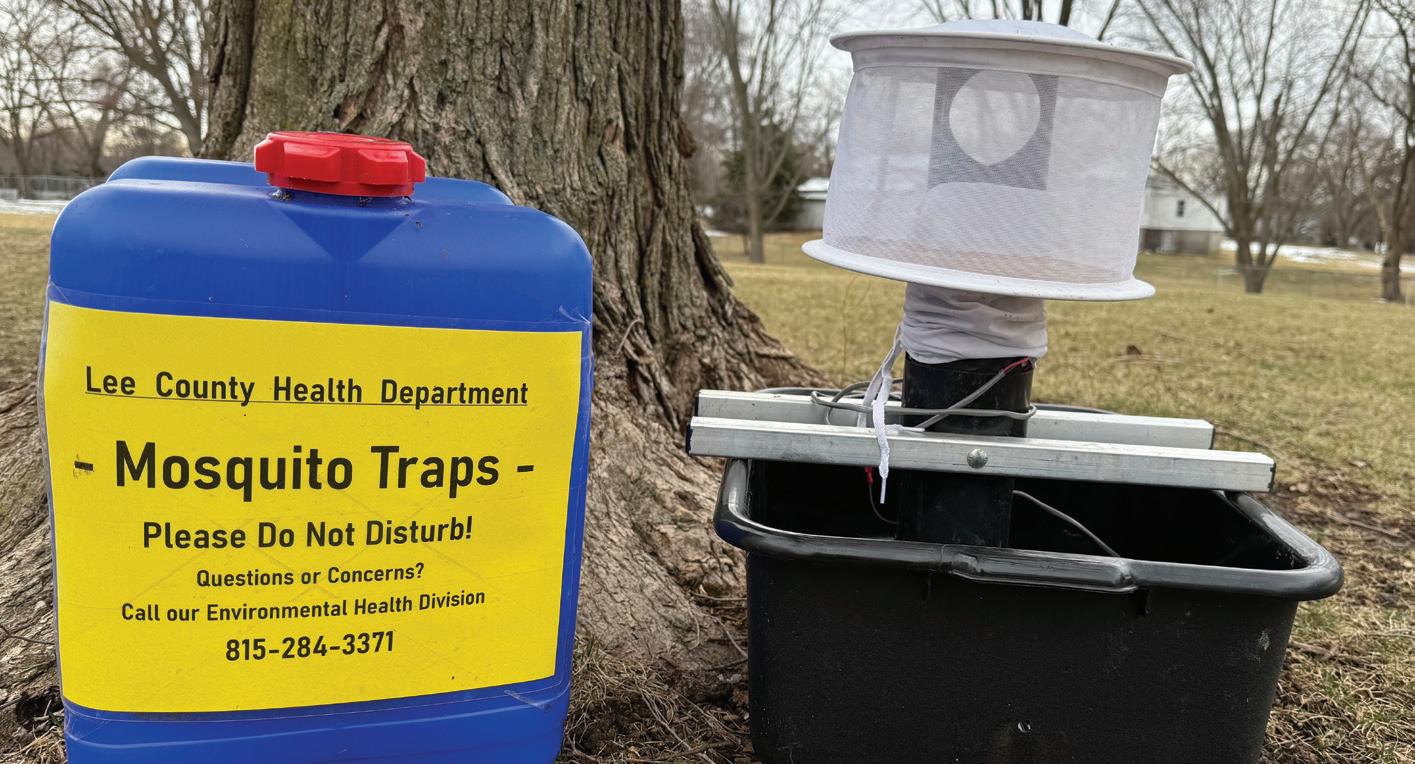
risk of catching WNV:
• Eliminate mosquito breeding grounds on your property – Mosquitos lay their eggs in stagnant standing water. Even small amounts of standing water can provide the perfect habitat for breeding sites. Regularly removing or treating standing water around your property can significantly reduce the risk. Be sure to monitor, empty, and clean bird or bee baths, plant pots and saucers, or pet bowls. Drain and build up low lying areas, ditches, or tree holes. Keep gutters clean and unclogged to prevent water from building up. Keep swimming pools and boats covered when not in use and maintained regularly. Empty and dispose of old tires, cans, bins, buckets, vehicles, trash receptacles, and other vessels that can collect rainwater.
• Use mosquito repellent – The Centers for Disease Control (CDC) recommends using a repellent that contains DEET to repel mosquitos.
Be sure to read and follow the label instructions before applying.
• Wear protective clothing – Especially during peak mosquito activity hours (dusk and dawn), wearing appropriate clothing can reduce your risk of bites. Wear long-sleeved shirts, long pants, and socks. Clothing should be loose fitting and light colored. Tuck pants into boots or socks. Wear a mosquito net over your head and neck.
• Barriers – Ensure screens, windows, and doors are tight fitting and in good condition to keep mosquitos out of structures. Use mosquito nets when sleeping outdoors or when screens are not available.
• Stay indoors during peak mosquito hours – Since mosquitos are most active at dawn and dusk, if possible, limit outdoor activities during these times. If spending time outdoors is necessary, take additional precautions, such as wearing repellent and appropriate clothing.

• Protect the most vulnerable populations – Certain groups, including the elderly, young children, and people with weakened immune systems are more vulnerable to the severe illness from WNV. Ensuring that these groups take extra precautions can help reduce the risk.
The Lee County Health Department performs WNV surveillance and abatement in our community. Preventing WNV in our community is a group effort. Besides prevention and awareness, how can you help combat WNV in our community? You can help by reporting areas of standing water to your local health department for assessment and possible abatement of mosquito breeding grounds. The collection and testing of mosquitos remains important to the continuation of our WNV surveillance program. We will continue collecting and testing mosquitoes from various locations within Lee County beginning in May. If you see one of our Gravid traps and signs around in the community, feel free to look but please do not touch. Due to H5N1 Avian Influenza, the Lee County Health Department and IDPH are not collecting and testing birds this year to test for WNV as in years past. Continue to protect yourself and your loved ones, spread awareness, and encourage others to take steps to prevent mosquito bites. To learn more about WNV, contact Lee County Health Department Environmental Health division at 815-284-3371. Stay safe! Reduce, repel, and report!


Fact: Mental health disorders are real, common and often treatable. An estimated 1 in 5 American adults1 (nearly 44 million people) and 13-20% of children living in the United States will experience a diagnosable mental health disorder in a given year, according to Mental Health America, an advocacy organization.
Where to find help will depend on age (adult or child) and the type of disorder or symptoms experienced. But qualified professional assistance is more available than ever.
Here are some things to keep in mind when looking for a treatment center.
Everyone is different. Needs vary from person to person, depending on the diagnosis. One of your first considerations is to look for a center that does not offer a one-size-fits-all approach to healing people.
The best facilities will have a wide array of treatment options. Then they will tailor their services to fit specific situations.
These centers will have a range of choices. At one end of the spectrum, there might be short-term outpatient care that can be performed in any setting, much like one-on-one counseling. At the end, there is full-time, long-term inpatient care in a hospital setting.
But most cases will be some -

where in the middle of these two choices. An ideal care center will be able to offer custom treatments for individuals. Whether you are seeking short or long-term care, the staff will be able to match you with the best care for your needs.
When people think of psychiatry, they often imagine one-on-one sessions with the patient laying on a couch. In reality, mental health care may involve a multidisciplinary approach.
Psychiatrists and psychologists are just the beginning. Other behavioral and wellness profession-

als can also assist in treatment.
There may be medical professionals like nurses and licensed therapists, along with social workers, case managers, teachers and therapists. It all depends on the diagnosis and desired outcome.
A good treatment center will be able to utilize a team of professionals who can work on a patient’s health from multiple angles for the most successful results.
Support is vital. When family and others get involved in the recovery process, it makes a huge positive impact on the individual.
Mental health professionals appreciate the support that a family can give the patient.
In addition, some issues — especially addiction — often leads to emotional and stressful family struggles. It is essential that the whole family learns how to deal with these dynamics.
Education is key. The best treatment centers encourage honest, open dialogue among family members. The family must establish healthy, clear communication about the issues they’ve been experiencing.
Emotional, mental and substance abuse issues do not affect just an individual. Everyone feels the impact in major ways, and all of those people can become involved in supporting the right health solution for the patient. And themselves.
Reputable treatment centers will have a strong aftercare program. They will recommend a course of ongoing, continuing care to keep the patient on track with their recovery.
This last stage can make a big difference over the long run. It will help the patient ease into daily life while still receiving continuing care.
A mental health center should be able to arrange for ongoing services, such as outpatient care, support groups or recovery residences to ensure as smooth a transition as possible once the initial, intense stages of treatment are completed.






Shopping is easier when you know what you’re looking for – especially when it comes it meat.
Gazing at the meats available at your local grocer, you may able be able to identify the simpler choices (hamburger, certain steaks). They’re all labeled of course, but there’s no real guide to which are the best cuts of meat.
If you don’t have access to a local butcher, the following tips can help you through the process of finding those cuts.
Choose the right cut of meat for your recipe.
Consider how you are cooking the meat and what you want your result to be. Traditionally barbecue uses less tough cuts and cooks them slowly until they become soft and tender. A brisket can become delicious and tender if you smoke it slowly over low heat for hours.
A Porterhouse or T-Bone are best cooked over high, direct heat for a short time.

Consider the density or toughness of the meat and its fat content.
Density can be hard to ascertain, so usually the cut indicates the density or toughness. Meats culled from different areas of an animal tend to be more or less tender.
Marbling – small streaks of fat running through the cut – can sometimes tell you about the fat content. Many people think marbling gives the Steak its best flavor. However, the quality of the marbling is important. Thick and consistent cuts of marbled meat would need to be slow – cooked to release the flavor and small, thin ribbons of fat are usually excellent for a traditional
Examine the color of the meat to see how red the color is.
Meat browns quickly when exposed to air. If you find bright-red meat without additives used to preserve that vivid color, then it is an ultra-fresh cut.
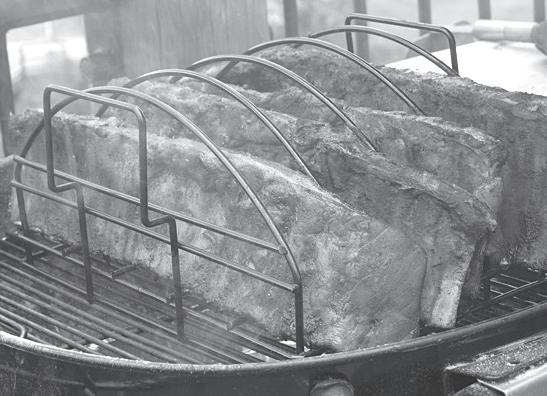
Novice cooks might start with a cheaper cut of meat, such as a sirloin steak for grilling.
Once you have practiced your grilling skills, work your way up to expensive meats such as New York
Strips, T – Bones, Filet
and Porterhouse. Ultimately, it is the quality of your cooking skills, coupled with your selection of meat that will make a great meal.



Those who seek out and collect antiques are driven by at least one of two passions: for the objects themselves and what they might mean to an individual or their interest in history, or they recognize their value and hunt antiques in order to connect with a collector. Sometimes passion and profit collide.
But there’s no denying that antiques and collectibles intersect at the point where nostalgia meets art in everyday things.
The character of older products and the sense of history dating back decades or generations can be inexplicably attractive. It’s because we know every antique piece has a story. Some have multiple stories embedded in the array of nicks and scrapes marking them. And we’re often free to imagine our own stories about their pasts.
Antiques don’t go out of style. No matter what the piece, there’s a good chance it will always be of interest to someone — a collector, a museum curator, a professional collector or an auctioneer.
Usually, a piece should be at least 50 years old to be considered

a true antique. But just because it’s old doesn’t mean it’s an antique. “Collectible” and “vintage” are not synonymous with “antique.” That’s an important distinction to keep in mind when shopping for authentic pieces.
Many items considered antiques are simply collectibles. View-Masters, vinyl records, spoons and even thimbles are some examples of popular collectibles that are not antiques. Also, vintage items are usually from a certain time period, such as the 1970s or 1980s.
When looking for authentic antiques, quality, craftsmanship, manufacturer and history of the
piece are paramount.
Where to find antiques
But to truly find the best and most authentic deals, shopping your local antique stores is your best bet.
You are much more likely to get a better deal on an authentic piece at your local antique shop. Local shop owners like to build a rapport with their customers and love to talk about the history of their inventory. When you shop locally, you will also have the assurance of being able to validate works before purchasing them.
Online stores and sites such as
eBay, flea markets and estate sales are great places to find antiques or collectibles. They might even offer you a good deal. But unless you really know your antiques use these venues with caution. Know the difference between a genuine antique and a fake. And never buy something without inspecting it.
Auction sites may be convenient, but you will have to add the cost of shipping and insurance to the price of the item. It is cheaper to find the same item at a local shop or estate sale. You can use an online auction site for research, to see what other people are bidding on the same or similar pieces.
Forming a relationship
After you have located two or three prospective dealers, visit their shops.
If you are searching for a particular item, most dealers will try to locate it for you. If they don’t have the item, they might be able to tell you about another dealer who carries it.
Creating a good relationship with an antiques or collectibles dealer has many advantages. Dealers can give you their assurance you that the pieces are authentic and often offer regular clients better prices. Reputable dealers can also help you find other resources, such as conferences and conventions that can help educate you in the art of finding the perfect antique for your home or office.














307 First Ave., Sterling Monday-Sunday 10am-4pm




The circumstances are never easy and may be emotionally crippling. Facing the death of a loved one requires planning that may be difficult. But there are ways to make this difficult decision a little bit easier on you and your family.
People often select a funeral home because it’s nearby or has been recommended by someone they trust. But by limiting the search to just one funeral home, you may risk paying more than necessary for the funeral and any additional goods or services offered.
Here are some tips to help make choosing the right funeral home less stressful.
Compare prices
If you have had to make funeral arrangements in the past, you may be tempted to just go with the funeral home you have experience with. While this may be a smart option for some people, it’s not always the right option.
Depending on how long it’s been since you needed to make funeral arrangements for a loved one, the price of that particular funeral home may have gone up. That’s why it is wise to shop around and compare the prices of the various funeral homes in your community.
Ask for recommendations
Even if you have never had to choose a funeral home in the past, you may have a friend or two who

has. Ask these friends if they would recommend the services provided at the funeral homes they have used.
They may be able to share valuable information about the staff, facility and prices of a specific funeral home.

Whether your deceased loved one had a specific list for their final wishes or you have to make these decisions for yourself, it is important that you ask a potential funeral home what types of packages they offer.
You will find that not all funeral homes are created equal, and each offers their own different ways of handling a service. No matter what type of requirements you have, it is best to choose a funeral home that will cater to your specific needs in order to make this difficult situation a little less daunting.
When visiting a potential funeral home, the funeral director can be a major deciding factor when you choose whether or not to use this particular company to handle the funeral of your loved one.
A caring and professional funeral director and staff will take the time to explain all your options in an empathetic way so you can make a better choice when choosing a funeral home.
If the director seems short or uninterested in your needs or makes you feel like you and your deceased loved one aren’t important, you won’t want to choose this facility to handle the funeral of your loved one.
While dealing with the death of a loved one is hard, choosing the right funeral home can help relieve you of some stress.
If you want your loved one to receive the proper funeral he or she deserves, following the above listed tips should help you make the right choice.

Let’s face it: Purchasing insurance isn’t fun. But not having insurance — or not knowing how to access it in an emergency — is worse. And if there’s a loss to your home, auto, or business, the last thing you want to have to do is figure out who’s your insurance company is when your life’s been turned upside down.
Insurance guarantees you peace of mind and protection, so choosing the right insurance company is a worthwhile investment of your time. But unless you know what you’re looking for in an insurance provider, you shouldn’t pick a company based on their marketing hype alone.
Premiums from company to company can vary widely, as can the type of coverage they offer. So, before you purchase a plan, you need to understand exactly what type of insurance you’re buying and how it will affect your bottom line.
Know your policy
You will have to take a look at the fine details and figures for each policy. If you are in the beginning of this process, insurance representatives should act more like teachers instead of salespeople. Your choices may be complicated, with a range of pricing options, deductibles and exclusions. A good company will give you choices, explain them clearly and let you make up your own mind.
While reviewing your options,


make sure you are comparing similar policies. If a premium seems unusually low, it might have a higher deductible or more limitations.
It is important that you get as much information as possible about each policy before making a decision.
Customer service always plays a key role in determining which company is best. If you’ve had friends or family who have filed insurance claims previously, ask them about their experiences.
Some insurance companies have better reputations than others. Gathering all of these experiences will give you a good idea of how you might be treated.
Each company has a different customer service philosophy. Some of them prefer to use a local representative to communicate with clients.
Others will discuss policies through their website or a 24-hour phone number.
Many insurance companies, however, use a combination of these methods. They might give you 24-hour access to national representatives along with a local advisor.
An insurance company is only as strong as its balance sheet. Financial strength is especially important these days.
Every insurer is independently
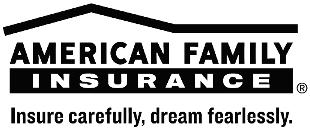
rated based on their finances. An insurance agent should inform you of the company’s rating and tell you what it means. A good rating means the company can make a payout in the event of a catastrophic event. A reputable, stable, well-capitalized insurance company is also likely to have more coverage options.
While your insurance premiums are an important factor, it is just one piece of a complicated puzzle. Choose a company that will not only give you a fair price, but who will also be prompt and courteous in the event you have to file a claim.
The right insurance company will treat you well at every level of interaction, provide quality coverage, and pay out in a timely manner should there be an accident.
Perhaps you’re running out of room in your apartment of house for storage items, maybe even a car or a boat, and an on-site storage building is not an option, it’s time to investigate storage centers.
If you’re looking into self-storage, chances are you’ve noticed there are a great deal of storage facilities looking to attract your business.
There are some important aspects to consider before selecting a storage facility.
Location is a key factor when selecting a storage company. Your ideal facility should be close to your home or office for ease of access. If you need to add or take something out of storage, you will be glad that you picked a convenient location.
Avoid using companies in risky neighborhoods. The overall security of the facility will be stronger when it is in a safer part of town.
Security is another important consideration. Your belongings should be safe for the duration of the rental. Visit the facility in person to verify its security protocol. If you can’t see the center in person, talk to a knowledgeable representative on the phone. The best facilities have three security layers.
1. The building has a security fence that is not easy to climb. It should be topped with barbed wire to discourage attempts to infiltrate

the perimeter.
2. Heavy, secure doors seal the center. Keys, codes or even biometric door locks safeguard your stuff.
3. A professional security guard should be on site at all times.
The amount of belongings you have will determine the unit you need. Some self-storage centers offer units as small as 24-square feet. If you are storing furniture or a ve-
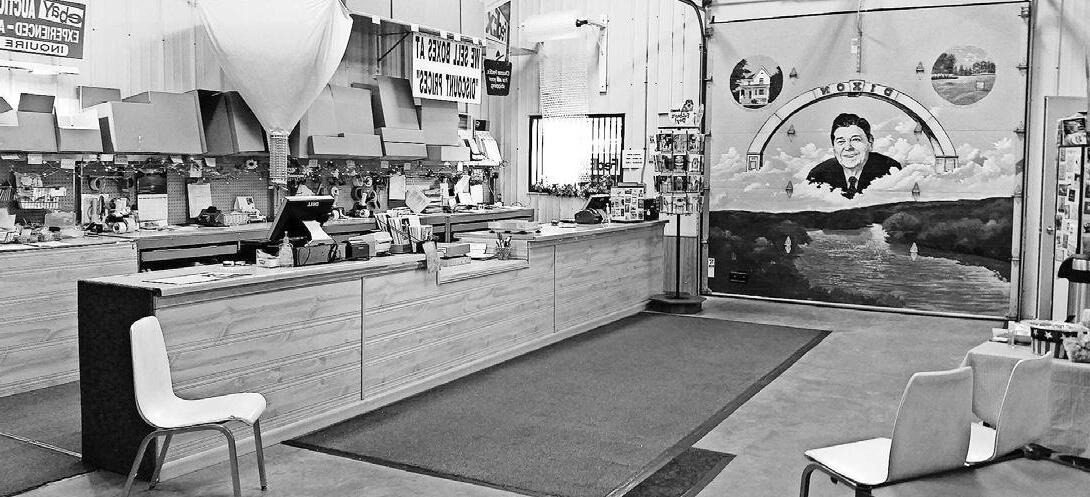
hicle, you will probably need a unit that measures at least 300-square feet.
Also, if you are storing sensitive items, such as musical instruments, look for a unit that has climate control. You can request to have an air conditioned or humidity-regulated unit.
Determine how often you will need to visit your items.
Some people store their belong-
ings for several months. They may only need access to them once or twice during that time. Other people might need to visit their unit several times a week.
The hours of operation should fit your schedule easily. If your schedule is unpredictable, you might consider using a storage center that is open 24-hours a day.
Don’t search for a bargain. Price should not be your only consideration. After all, if you choose an inexpensive facility, they may be cutting back on important aspects. Maybe they don’t have as much security as other facilities. Maybe the building is not maintained well.
Selecting a facility based solely on a low price may cause you to pay in other ways. It is not fun having your items stolen or damaged. Of course, within a storage facility, a smaller unit will be cheaper to rent than a larger one. But if the overall prices are lower than average, be very cautious.
The best way to find a good storage center is word of mouth. Ask your social network for recommendations. Advertisements, the Yellow Pages and even the internet are good sources of information. Be sure to check out several companies before narrowing your search.
Start early, take your time and follow your intuition. That way, you can’t go wrong.
Owning a farm comes with huge responsibilities, not the least of which is upkeep and maintenance. Fields require mowing, fences fix and large piles that require moving and disposal. Choosing the right tractors and farm equipment can make these duties less of chore.
That’s why you want to make sure you’re getting the highest quality bang for your buck when purchasing tractors and other farm equipment. You want to get a good deal, but remember that cheaper isn’t always better. After all, you’re making an investment in a valuable asset you’ll be using around the farm for decades to come.
Here are a few keys to consider.
Tractors are engineered to do a very specific task, and their longevity and durability usually — but not always — will vary with the cost.
That’s why it’s important to find the right tractor to fit the job you’re doing. Buying equipment that isn’t built to last will end up costing you more in the long run.
The brand’s reputation should factor into your decision. Look for online reviews and talk to farmers you respect about the brands they use.
Also, visiting a retail location and talking to knowledgeable salespeople will also help you narrow down your choices.
Keep in mind that while there are plenty of low-end, affordable tractors out there, few have a rep-

utation for durability over the long haul. It’s more economical in the long run to choose a well-built model from a reputable manufacturer.
Tractors and farm equipment come in a wide range of capabilities and price points, from affordable models designed for home use to multimillion-dollar, state-of-the-art automated machines. In between those extremes, you’ll find a vast mixture of features and capability.
You can select the right model by asking yourself how you’ll use the equipment. The size of your farm is important, of course. Bigger farms need larger, more capable equipment to operate at the highest level of efficiency.
Remember, too, that when you buy a tractor, you’re committing yourself to a whole line of equipment. Most of today’s tractors are designed as flexible platforms that can be used for all kinds of jobs, so check on the accessories and tools
that are available with each model, even if you don’t plan on purchasing them yet. You may appreciate the choices in the future.
Every manufacturer of farm equipment says they’re built to last, but how many of them back up their claims with a solid warranty? The warranty term and coverage can be one of the most critical considerations you weigh as a buyer. Not only will a great warranty help you if your equipment has a malfunction down the road. It’s also a sign of how much faith the manufacturer has in their products. Strong warranty coverage usually corresponds with products that are designed with toughness and durability in mind.
Finally, finding a good farm equipment dealer is an essential part of the shopping process.
Look for an experienced retailer with a long track record of happy customers. The best ones will have lots of positive references in the local farming community, so just ask around for which farm stores people in your area trust.
The best retailers will be interested in building a relationship with you for the long term. You can count on them to deliver great service before and, more importantly, long after the sale is complete.


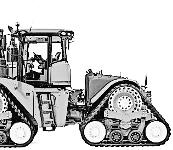




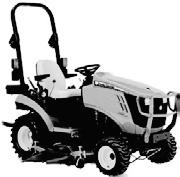



When choosing hospice, you are choosing a type of care that specializes in caring for those who are in the last six months of life. It’s an emotional period for anyone, but an important decision that will ensure a loved one will receive the care and comfort they deserve.
According to the National Hospice and Palliative Care Organization, only 50.7% of people choose hospice care when they are faced with the possibility of death. But hospice is not only for the dying. Loved ones also benefit from hospice care, as nurses, home health aides, social workers, bereavement counselors and chaplains will support them with education, and emotional & bereavement support through some of the most difficult moments in life.
Hospice care can be provided in the patient’s home, assisted living centers, nursing homes, or an in-patient hospice home.
While all hospices are regulated by the government, each hospice has meaningful differences in personnel, policies and facilities.
Here are some things to consider when selecting hospice care:
Location
Hospice specializes in making the patient feel as comfortable as possible. Care can take place anywhere. Patients can even receive services in their own homes, or wherever they call home – a nurs-
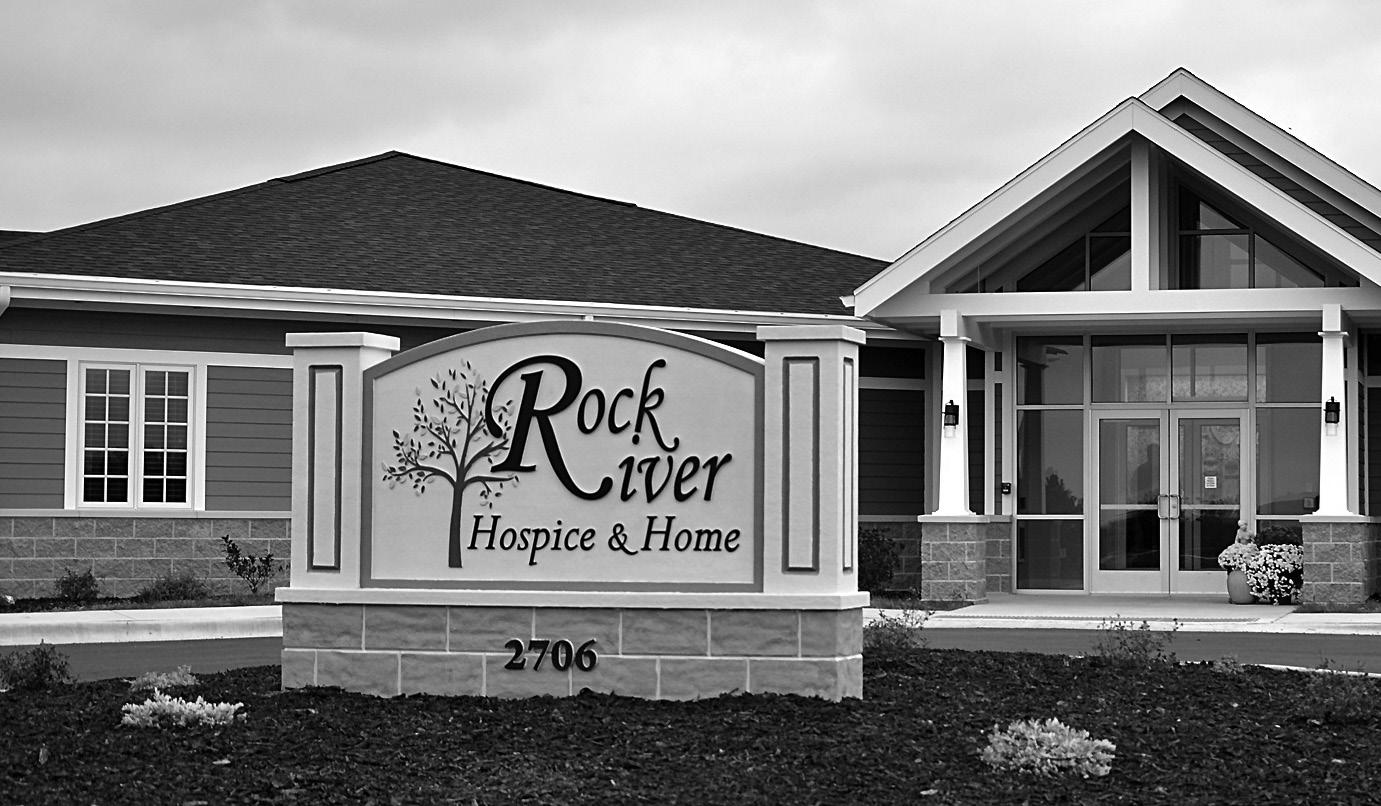
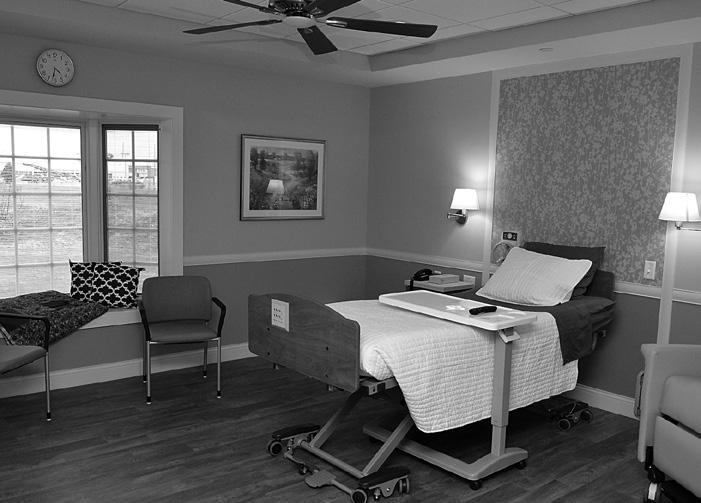
ing home, assisted care center, or where they are most comfortable. Some cases may require more specialized care than others. The patient can also choose to stay in a hospice home that can give them easy, 24-hour access to nurses, medication and medical equipment needed for their comfort.
The hospice team and your physician can discuss the options with you and your family to help determine which might be the best option for your specific situation.

Pick a hospice service that helps you feel at ease. You are going to have to ask and answer some extremely difficult questions. Death is a tough subject to discuss. Clear, caring communication is absolutely essential.
A quality hospice program will give you all the time and personal attention you need to ease your mind.
Picking a hospice involves having the right feeling. If the hospice
staff is personable and makes you feel comfortable, that’s a good sign.
Every patient who receives hospice treatment must be qualified by a physician. Usually, this means there is a life expectancy of six months or less.
Since some physicians may hesitate to broach the subject of hospice care, you may need to bring it up yourself. Ask whether hospice care would be appropriate and which services might be most helpful to ease the end-of-life process. It is never too early to request a referral visit if hospice care is appropriate for you and your family. In 2018, the National average for days in care for patients receiving service ranged from 1-7 days of care at 27.9% to >180 days at 14.1%. Helping families and physicians to have end of care planning conversations earlier is a goal for hospice to ensure patients and families receive the maximum benefits that they have available.
You can also approach a hospice facility directly to ask about their services. They will help you determine which care is most appropriate.
Hospice care has been growing since the 1990s. It is possible to die with peace and dignity. Hospice can help make the end-of-life experience a little easier for the patient and their loved ones.



Finding the right insurance agent isn’t as simple as choosing the cheapest policy. A good insurance agency is an advocate for your needs and represents your interests in covering your health, home, auto and other insurable valuables. They’ll guide you through the maze of options available to you and help find policies that protect you and your budget.
Unfortunately, not every agent is the reliable, reputable agent professional you’d hope. It’s important to make sure you vet your agent prior to opting into the coverage they offer. Your financial future depends on finding the right person to help you get insurance that will fit your needs.
Here’s some guidance on how to find the best agent or broker for your needs.
Family, friends and colleagues have likely worked with insurance agents in the past. Ask people you trust for referrals. If you receive a recommendation, it is because that person has had a positive experience. There is a strong likelihood that you will have similar results.
Good agents understand that offering great service will keep them in business. Their careers depend on word-of-mouth. If you are happy with the service you receive, your

insurance agent will appreciate your willingness to send business their way.
If you do not have recommendations, begin researching your options. Begin by looking at local companies and brokers. As you conduct your research, be thorough and critical. Buying a policy is similar to purchasing a new car or home. It truly is that important. Select a company that is highly regarded by consumers. Read
reviews of each company to determine who has the most satisfied clients. Are they easy to work with? Have there been any problems with collecting on a policy?
Also, check that any prospective agent has all necessary licenses and training.
After narrowing your list of prospective agents, make an appointment to visit each one. Prepare a list of questions and concerns about your personal situation. Take notes
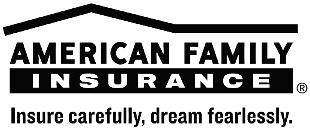
during your meeting. Remember that you must feel comfortable with the answers before purchasing a policy. If an agent tries to pressure you into making a decision right away, inform him that you need more time and cannot sign anything immediately.
The right agent will let you take as much time as you need to understand the implications of each policy. They will give you useful information and not subject you to high-pressure sales techniques.
Your agent should be available. The relationship doesn’t end once the sale is completed. Your dialogue should be continuous. The best agents are available in the event you have to file a claim.
Agents who have been in business for many years likely have a good reputation and track record. They understand the policies and will even take extra care that you are properly protected. It is essential that you choose the right type and amount of insurance to adequately protect yourself and your financial future. The policy should be tailored to fit your specific needs.
A seasoned, skilled insurance agent will be an invaluable resource for safeguarding your future.
Buying a big-ticket item such as an appliance is a major investment. You might be lulled into a shopping after seeing advertisements and sales featuring new appliances with all the latest features and technology. Or you may just need to replace an aging appliance on its last legs.
Either way, it’s smart to figure out what you really need, how much you can afford and which stores offer the best quality and deals. Chances are you’ve already done some research or quizzed friends or family about their own experiences with various appliances, but shopping for one can be daunting. But it can also be fun.
These days appliance manufacturers produce items that have every conceivable feature to make your life easier. Exploring these innovations in home appliance technology can be an enjoyable and eye-opening experience.
We’ve put together some tips that can help you narrow your search and find exactly what you need. But first you’ll have to determine your budget and requirements — what you need, what you want and what you’re willing to pay for it.
Now, it’s time to go shopping.
First, do an internet search for appliance stores in your area. Local stores are easier to work with and you will likely be able to get your appliance much quicker than if you had to go out of the area or order

it. If your refrigerator has stopped working, this is especially important. Many appliance stores also offer free delivery in the local area. You can get a good idea of the services offered by various companies via business review sites. Don’t dismiss negative reviews, but keep in mind that customers who have good experiences are less likely to crow on the internet.
Consumer Reports and the Better Business Bureau are also great resources for finding reputable businesses. To qualify for listing on the Better Business Bureau site, the business must be reliable and honest.
Many stores also have review sections for customers to leave comments, reviews and ratings for the services and the products they sell, which can give you some insight into the business and their products.
For most of us, getting a good





deal is probably a top concern when shopping for appliances. Check your local newspaper and your mailbox for circulars announcing the latest, greatest deals on appliances in your area.
Many stores will use price-matching to stay competitive. Not all stores have policies on price-matching, so be sure to ask first. If you can find a lower advertised price on the exact same product and model elsewhere, many stores will sell you the product for that price.
As always, conduct research on the appliance you need to make sure you are spending money wisely. Not all appliances are the same; just because one manufacturer was excellent two decades ago doesn’t mean the quality will be the same now.
Review the store’s policies about warranties and repairs. If the appliance comes with a one-year manufacturer’s warranty, you might not



need an additional warranty from the store.
Appliances have a yearly saleprice cycle. Washers and dryers usually go on sale during the winter. Refrigerators are often discounted in the spring, with stoves and ovens dropping in price during the fall. If you don’t need it right away, consider shopping seasonally for the best deal.
You could also haggle for a price, especially at a local appliance store. Salespeople are typically prepared for this process. If you are too shy or afraid of haggling, ask the store for extras, such as an extended warranty or free delivery and set-up. It never hurts to ask. They just might give it to you.
Consider these questions when you’re looking for an appliance store: Do they have a delivery window, warranty options, repair services and range of products?
Answer these questions, and know that you’ll purchase appliances with confidence.

























































































By Melissa Gates LCSW March 2025
Transcranial Magnetic Stimulation (TMS) therapy has emerged as a promising treatment option for individuals struggling with certain mental health conditions. As a non-invasive procedure, it has gained attention for its ability to offer relief to those who have not found success with traditional treatments like medication or therapy. But how does TMS work, and is it the right choice for you? Let’s explore the details.
What is Transcranial Magnetic Stimulation?
TMS is a non-invasive procedure that uses magnetic fields to stimulate nerve cells in the brain. The goal is to improve the symptoms of mental health conditions by targeting areas of the brain that may be underactive or malfunctioning. It is most commonly used to treat depression, especially in patients who have not responded to other forms of treatment such as antidepressant medications or psychotherapy. During a TMS session, a magnetic coil is used to first map the brain to isolate the area of treatment. In subsequent treatments, the coil generates magnetic pulses that stimulate the targeted regions of the brain, which are thought to regulate mood and emotional responses. Each session typically lasts about 30 minutes, and the procedure is usually conducted five times a week over the course of six weeks.
Conditions Treated with TMS

TMS is generally recommended for individuals who have not responded to conventional treatments such as antidepressants or therapy. Those with treatment-resistant depression, who have tried multiple medications without experiencing adequate relief from depression may benefit from TMS. Patients seeking a non-medication, non-invasive treatment option without the side effects associated with medications may find TMS to be a viable alternative. While Depression is the primary condition treated with TMS, research has shown that it can be effective for the treatment of Obsessive Compulsive Disorder (OCD), and Anxiety associated with depression. However, certain individuals should avoid TMS. Individuals with metal implants in or near the head, such as a pacemaker or deep brain stimulator, are not candidates as the magnetic field could interfere with the device. Those with a history of seizures are also not candidates, as the treatment can provoke seizures in some rare cases. Lastly, the safety of TMS

during pregnancy has not been fully established, so pregnant women should consult with their healthcare provider before pursuing this treatment.
TMS is typically performed in a clinical setting under the supervision of a trained professional. The process is painless for most patients, although some report a mild discomfort or sensation of tapping on the scalp. A certified clinician will first complete a mapping session, locating the targeted area for TMS. During the procedure, patients sit in a comfortable chair while the magnetic coil is positioned on their scalp. The magnetic pulses are sent through the coil and into the brain, with the patient remaining awake and alert throughout the session. While there is no recovery time, some individuals may experience minor side effects, such as headache or minor scalp discomfort. These symptoms are typically short-lived and subside after a few hours.
Ultimately, the decision to pursue TMS therapy should be made
in consultation with a healthcare/ mental health professional. They can help assess whether TMS is appropriate based on your specific condition, medical history, and treatment preferences.
If traditional treatments like medication and therapy have not been effective, or if you are looking for a non-medication option, TMS may be a promising alternative to explore. Keep in mind that TMS therapy is not a one-size-fits-all solution, and what works for one person may not work for another. With its growing success rate in treating conditions like depression, OCD, and anxiety associated with major depressive disorder, TMS may just provide the relief you’ve been seeking.
Transcranial Magnetic Stimulation represents an exciting frontier in mental health treatment, offering hope to individuals who have not responded to traditional methods. Whether TMS is the right choice for you depends on your specific situation, and it’s always wise to carefully weigh the pros and cons with your doctor. As research continues to support its effectiveness, TMS may become an increasingly important tool in the fight against mental health disorders.
If you’re interested in learning more or exploring whether TMS could be an option for you, consult with Path to Healing, Inc., the only provider of TMS services in the Sauk Valley Area.
Buying a vehicle is a significant financial decision that requires careful planning and research. Whether you’re purchasing a new or used car, the process can be overwhelming. This step-by-step guide will help you navigate the car-buying process and ensure you make a well-informed decision.
Before you start browsing vehicles, determine how much you can afford to spend. Consider how much money you can pay upfront as a down payment and whether the monthly payments fit within your budget if you are financing the vehicle. It is also important to account for insurance costs, as different cars come with varying premiums. Additionally, think about ongoing expenses such as maintenance and fuel efficiency. A good rule of thumb is to spend no more than 15% of your monthly income on a car payment. When selecting a vehicle, think about your needs and preferences. Consider the purpose of the car— is it for family use, commuting, or off-road adventures? Size and space are also crucial factors; you might need extra cargo room or additional passenger seating. Decide whether you want a new or used car. New cars come with warranties but depreciate faster, while used cars are more affordable but may require more maintenance. Features such as technology, safety components, and convenience options like navigation, backup cameras, and heated seats should also be taken into account.
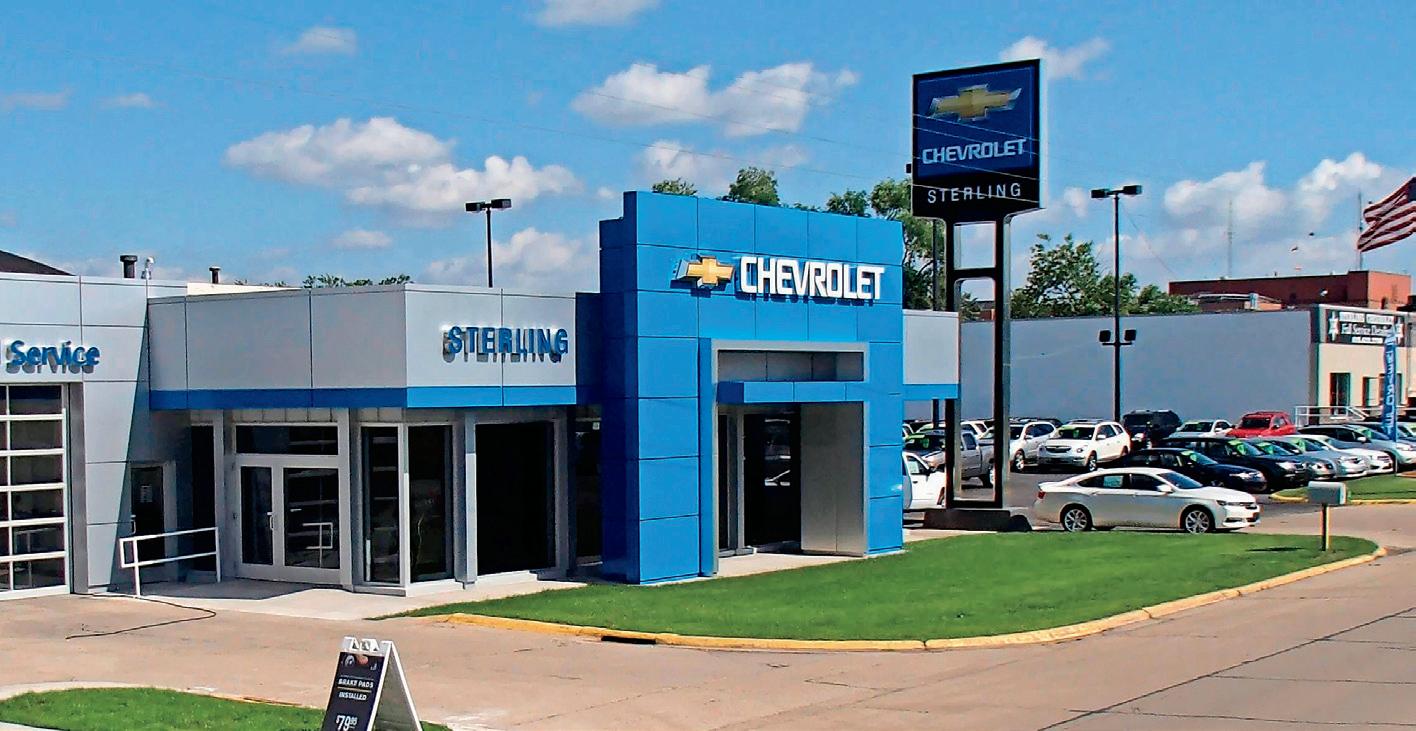
Use online resources to research different models and compare prices, features, and reviews. Websites like Kelley Blue Book, Edmunds, and Consumer Reports provide valuable insights into pricing and reliability. If you are considering a used car, check vehicle history reports using services like Carfax or AutoCheck. Reading consumer and expert reviews will help you understand real-world performance. Comparing dealerships and private sellers can also lead to better deals.
If you need a loan, shop around for the best interest rates. Compare offers from banks, credit unions, and dealership financing options. Checking your credit score beforehand is essential, as a higher score can help you secure a lower interest rate. Getting pre-approved gives you a clear budget and strengthens your negotiation position. Be sure to understand loan terms, including interest rates, loan length, and the total cost over time.
Never buy a car without taking it for a test drive. During the test drive, assess comfort and visibility, test acceleration, braking, and steering, and listen for unusual noises from the engine or brakes. Check all features and electronics to ensure they work properly. Drive in different conditions such as highways, city traffic, and rough roads to see how the vehicle handles in various situations.
If you are buying a used car, have a trusted mechanic inspect it before making a purchase. This can help identify hidden issues that could be costly to repair, giving you a clearer picture of the vehicle’s condition.
Once you’ve selected a vehicle, negotiate the price to ensure you get the best deal. Knowing the market value using resources like Kelley Blue Book or Edmunds can help you determine a fair price. Be prepared to walk away if the seller is unwilling to negotiate. Looking for incentives and discounts, such
as promotions, rebates, or special financing offers, can also help you save money.
Before signing any contracts, carefully review the paperwork to ensure everything is in order. The purchase agreement should reflect the final price, fees, and financing terms. Understand the warranty information, including what is covered and for how long. Ensure all ownership documents, including the title and registration, are properly transferred. Be aware of additional fees, such as dealership fees, taxes, and registration costs.
Once the paperwork is complete, make the payment via financing, cash, or trade-in. Collect the keys and owner’s manual, and ensure all agreed-upon repairs or additions are included. Before driving away, register the vehicle and get insurance to ensure you are legally covered.
To keep your vehicle running smoothly and retain its value, follow the manufacturer’s maintenance schedule. Keeping up with oil changes, tire rotations, and inspections will prevent bigger issues down the road. Addressing repairs promptly will help avoid costly fixes later. Keeping records of all maintenance and service work can also be beneficial, especially if you plan to sell the vehicle in the future. By following these steps, you can confidently purchase a vehicle that suits your needs and budget. Happy car shopping!
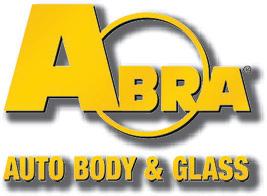
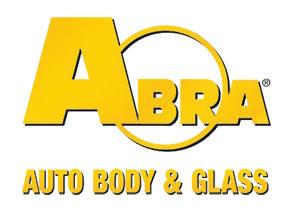




Pets are our family. It makes sense when it’s time to choose a pet groomer, you want to make sure you’re picking the very best person for the job. Here are some helpful tips to help you in choosing the right groomer for your furry family members.
What certifications do pet groomers have to have?
The pet grooming industry in an unregulated industry. Meaning there is no license or certification required to declare oneself a pet groomer. There are grooming schools and expos where one can take classes and seminars. Some are taught by established pet groomers. There are certifications a groomer can receive. However, it is all voluntary and not something every groomer possesses. This does not mean a groomer who does not possess any certifications is not great at their job. But it nice to know if your groomer has been certified in First Aid/CPR, with certain breeds, ages, special needs, health or behavioral issues.
Communication
One of the most important things between a pet groomer and their clients is communication. How does the shop operate? Some groomers are one on one, meaning only one dog is in the shop at a time, some groomers are cage free, allowing all the dogs to run around with each other, some shops use kennels for their dogs to relax in until pick up time. Which style would suit you and your pet the best? Pets cannot speak for themselves. It’s important to communicate honestly with your groomer and they communicate honestly with you even about your pet’s behavior. If your groomer says your pet was biting for a certain part of the groom, they do not mean your pet is mean or bad. Animals cannot speak, they cannot say “stop!”. So growling, biting, etc. is their way of communicating. I have witnessed some groomers choosing to not communicate when pets have acted negatively during grooming because they did not want to offend pet owners.

However, knowing if there is something a pet struggles with is important. This gives pet owners a chance to work with their dog at home and also gives them the opportunity to communicate that information to the next groomer, helping reduce the chance of a groomer being bitten or the dog getting unnecessarily stressed. Communication is also important when it comes to the haircut. A lot of pet owners use terms like “puppy cut, summer cut, short but not too short, etc.”. These terms can mean different things
to different people. Ask for examples of different fur lengths, they may have pictures or hair length charts to give a better idea. If you bring a reference picture, be sure the picture is of the same breed and coat type. Certain hair styles are not achievable with certain coat types. If your pet has matting, the groomer should be able to show you the matted areas of the coats and explain what options you have. Then hopefully also help explain how to avoid matting in the future. The great thing about hair is that it grows back! So even if the length you try that first time isn’t your favorite, you can always change it next time!
You hear the phrase “it costs more to get my dog’s haircut than my own”. The truth is it does! But when your pet is at the groomer getting a haircut, they are not just getting the top of their head trimmed like people do when they go to a hair salon. Pets get a bath, a blow dry, nails done, ears cleaned, all over haircuts (including trimming up and cleaning potty areas). And all of this is being done while your pet is jumping, wiggling and sometimes biting, on top of cleaning up any accidents that occur during the visit. I think we can all agree our own hair stylists would charge a lot more if they had to deal with all that.
In the end, groomers and pet owners both want the same thing. For your pets to look and feel their best. When choosing your groomer, ask questions, let the groomer ask you questions back. Whether you choose to visit us ladies at Furology Pet Spa in Dixon, or one of the other talented shops in the area, take the time to research and find your perfect fit. Establishing a good relationship with your groomer will ensure your pet can be their happiest, healthiest self for years to come.
































Many people believe their timeshares cannot be cancelled, but they often can be. Our founder and CEO, Chuck McDowell, has successfully helped over 30,000 families get rid of their timeshare and he can likely help you too. If you were misled, lied to, or pressured, you may have an easy exit with a 100% money back guarantee.
• Start with a FREE consultation to tell your story.
• If we see that the circumstances of your situation qualify you to exit the timeshare, you’ll be assigned a specialist to walk you through the process.
• Our Resolution Department works quickly to have your timeshare and all related fees permanently terminated.
We’ve been able to help many timeshare owners that contact us. You could be one phone call away from complete peace of mind.
We have a dedicated team waiting for your call.


Don’t think for another minute that you are stuck with this. What we do is help you cancel your timeshare along with all of the debt and fees associated with it. Guaranteed.

CEO
“Wesley Financial was awesome to work with. They were professional and very understanding of the situation we were in.
Thank you all so much. This has been a huge burden and you all helped relieve that burden. Thank you.”



- Kyle S Wesley Financial Group, LLC client
Exploring local history in the Sauk Valley region of Northern Illinois can be a fascinating journey. Whether uncovering family roots, learning about community development, or discovering hidden stories, delving into the past fosters a deeper appreciation for the place you call home. Here are some effective research strategies.
Start with What You Know
Begin with family stories, old photographs, letters, and newspaper clippings. Interview older relatives or longtime residents for firsthand accounts of local events, businesses, or landmarks.
Visit Your Local Library Libraries are invaluable resources. The Dixon, Sterling, and Rock Falls Public Libraries, along with the Sauk Valley Community College Library, house historical documents, maps, newspapers, and genealogy tools like Ancestry.com or HeritageQuest, often accessible for free. Be sure to check out the Sauk Valley Community College Library as well, which holds various local records and periodicals that can deepen your research.
Connect with Historical Societies
The Lee and Whiteside County Historical Societies offer artifacts, photographs, and exhibits detailing

the region’s past. Staff and volunteers can help guide your research.
Utilize Online Resources
Websites like the Illinois Digital Archives and the Library of Congress’s “Chronicling America” provide digitized newspapers, photographs, and public records. Genealogy platforms like FamilySearch. org and FindAGrave.com can help trace family histories.
Explore County and Township Records
Government offices hold records such as deeds, property transactions, and tax rolls. The Lee and Whiteside County courthouses maintain historical records dating back to early settlements, while township records provide insight into governance and infrastructure
development.
Visit Historic Sites
Exploring landmarks brings history to life. The Ronald Reagan Boyhood Home in Dixon offers insight into the early 20th-century social and cultural landscape. The Northwest Territory Historic Center highlights pioneer history and Abraham Lincoln’s regional connections. Other notable sites include the John Deere Historic Site in Grand Detour and the Hennepin Canal Parkway.
Engage with Local Museums
Museums provide curated insights into the region’s history. The Loveland Community House and Museum in Dixon showcases cultural and industrial heritage, while the Sterling-Rock Falls Historical
Society Museum highlights the area’s agricultural and industrial past.
Explore Newspaper Archives
Old newspapers document everyday life, covering events, obituaries, advertisements, and social happenings. The Sauk Valley Newspapers archives can be accessed online or via microfilm at local libraries.
Join Community Events
Historical reenactments, festivals, and lectures hosted by local organizations offer interactive ways to engage with the past. Groups like the Dixon Historic Preservation Commission often organize events that celebrate regional history. Document and Share Your Findings
Preserve your research by writing family histories, creating photo archives, or contributing findings to historical societies to ensure future generations benefit from your discoveries.
Researching Sauk Valley’s history is an exciting opportunity to connect with the past. By exploring archives, speaking with residents, and visiting historical landmarks, you can uncover captivating stories that reveal the rich heritage of Northern Illinois.

A wood deck is a great extension of your living space, but without proper care, it can quickly fall victim to weather damage, rot, and fading. Protecting your deck isn’t complicated, but it does require regular upkeep. Here’s how to keep your deck looking great and lasting for years.
1. Clean It Regularly
Dirt, debris, and mildew can wear down the surface of your deck over time. Sweep your deck regularly to prevent buildup, especially in corners and between boards. At least once or twice a year, give it a deeper clean using a deck cleaner or a mild detergent with a stiff-bristle brush. Power washing can also be effective—just be sure to use a low-pressure setting to avoid damaging the wood.
2. Inspect and Repair
Before sealing or staining, inspect your deck for any signs of wear. Look for loose nails, cracked boards, or areas where the wood may be rotting. Replace damaged boards and tighten any loose fasteners. If you find areas with splinters or rough spots, sand them down to smooth the surface and prevent injury.
3. Seal or Stain for Protection
One of the best ways to protect your wood deck is by sealing or staining it. Sealers help repel water and prevent moisture from soaking into the wood, while stains add

color and UV protection. Choose a high-quality product designed for outdoor use, and apply it according to the manufacturer’s instructions—typically every two to three years, depending on weather exposure.
4. Cover or Shade When Possible
Sun and rain are two of the biggest threats to a wood deck. Adding

a pergola, awning, or even using outdoor furniture covers can help minimize direct exposure to harsh weather. In the winter, consider using a breathable tarp or cover to shield your deck without trapping moisture.
5. Avoid Traps for Moisture
Planters, outdoor rugs, and furniture that sits directly on the deck can trap moisture underneath. Use
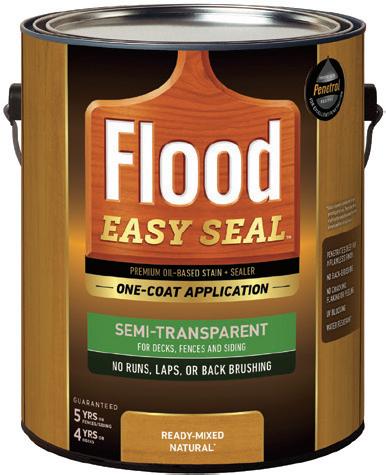
risers or move them around regularly to allow airflow and prevent mildew or mold growth.
Final Tip: Don’t wait until your deck looks weathered to maintain it. A little regular upkeep goes a long way in extending the life of your wood deck and keeping it safe and beautiful year after year.

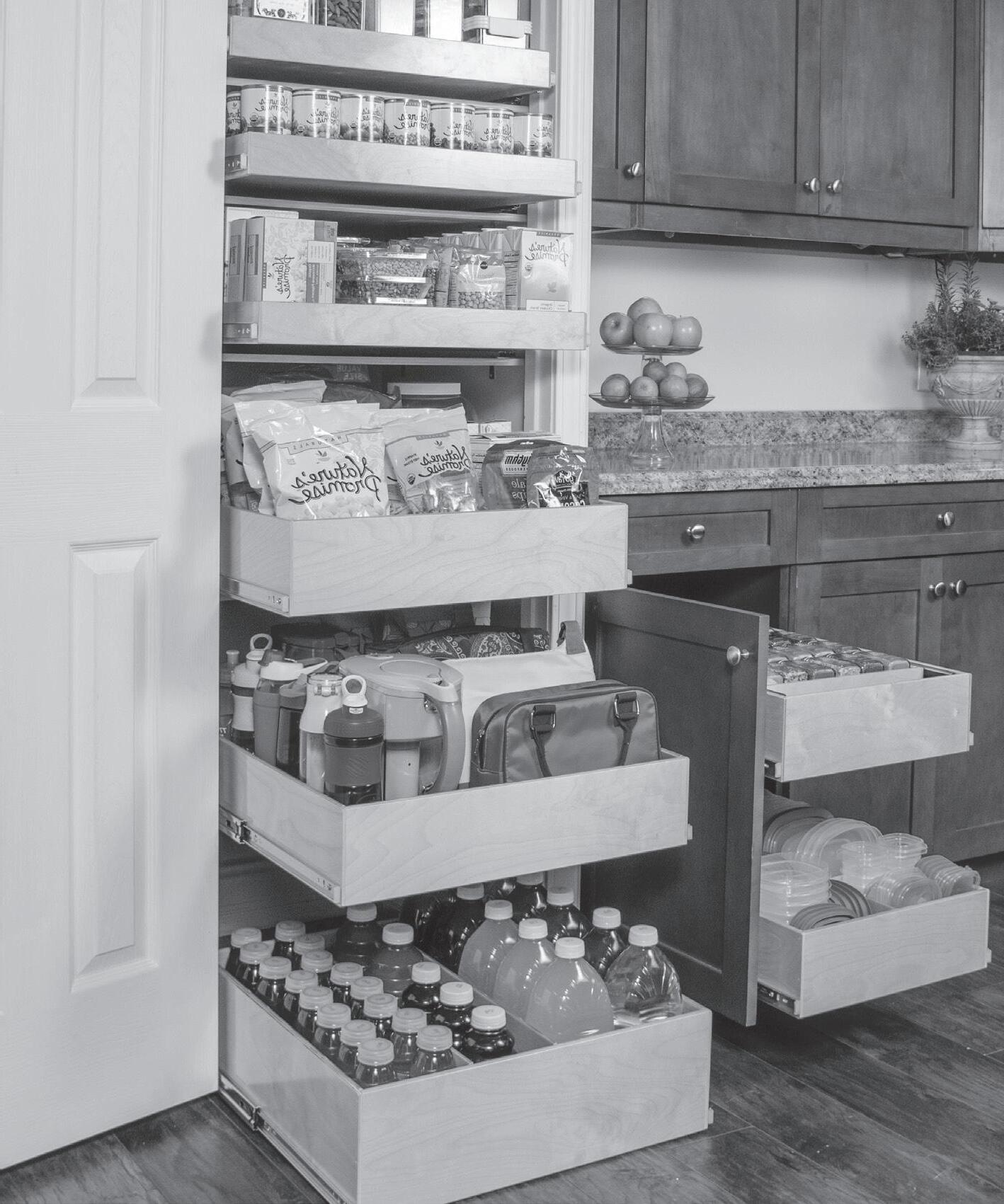



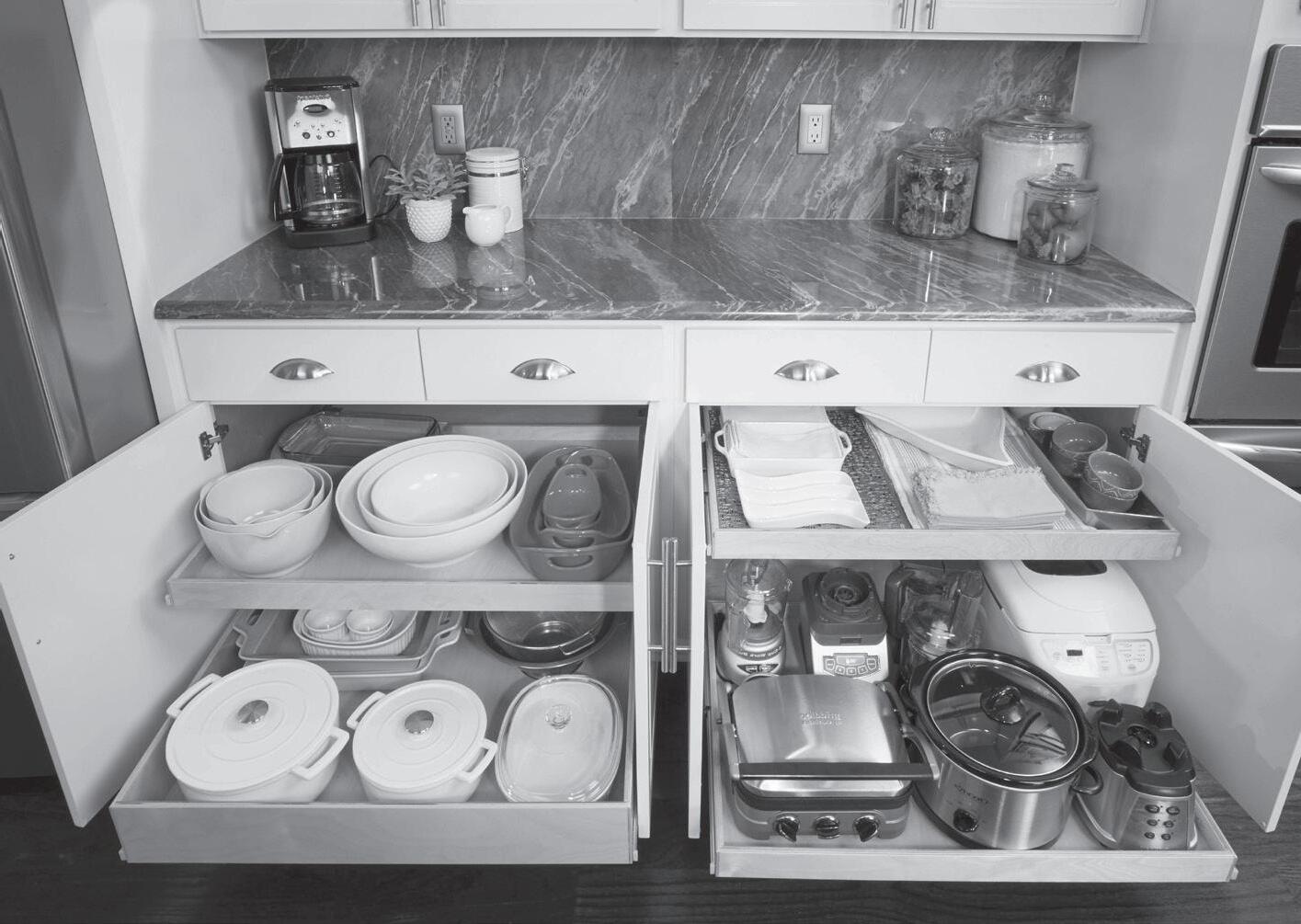



Used car dealers fight an almost institutional poor reputation. But a good used car dealer can save you money and put you in a reliable vehicle that matches your preferences and budget.
While it can be true that some used car dealers are less than scrupulous, finding a reputable dealer can be a valuable key to finding a great car at a great price.
If you’re in the market for a used car, you only need to know what you want to buy and how to spot a dishonest dealer.
Here are a few tips.
Knowing what you want will help you save time and effort. You may not know the exact make and model, but at least have an idea of the automobile type. Are you searching for a sports car, SUV, pickup truck or van? Focusing on the type of car will help you avoid wasting time visiting dealerships that don’t sell the type of used car you need.
Figuring out your budget is essential. How much do you want to spend? Search the Kelly Blue Book (http://kbb.com) or the NADA Guides (http://nada.com/) for what you might spend on the type of car you prefer.
Also, search the Internet and car websites to get a firm idea of asking prices for your type of car.

Friends and family members who enjoy cars as a hobby will have information for you about reliable dealers. If they have recently purchased a used car, they will have experience with who treated them right — as well as who didn’t. Word of mouth is one of the best indica-

tors of a reliable business.
When you find a business that gets more than one positive review, make sure to check them out.
Compile a list of dealerships you want to visit.
Call and make appointments with


salespeople. Ask them about financing and extended warranties. Both may figure prominently in your decision-making process.
Try to speak with everyone on your list. Comparing as many people as possible will help you avoid making a hasty, uninformed decision.
See each dealership in person to look for cars that match your type. Going there will help you feel confident about doing business with them.
When you look at cars, ask about maintenance and previous owner reports.
Don’t purchase a car on the first visit. Just take a business card and move on to the next dealership on your list.
Once you have seen everyone on your list, research customer reviews of the ones who impressed you the most. You will find the best dealership by considering who will give you the best deal and who has received the best customer reviews.
Finding the right used car dealer is almost as important as buying the best used vehicle. After all, you want to make sure you are doing business with reputable people who will stand behind their sales. You don’t want to end up with a “lemon” and end up having to start the search for a new used car all over again.
If you or someone you love are faced with such as issues as addiction, depression or anxiety, finding the appropriate treatment provider is crucial in getting the best care possible.
The good news is that there are more general and specialized treatment providers and centers available than ever before. Further, there is less stigma, more recognition and an evolving scope of treatment and therapy to help anyone who suffers from these and other behavioral health symptoms.
Behavioral health care is an umbrella term for a range of issues from depression to substance abuse, psychiatric troubles and more recently recognized struggles such as eating disorders.
Children, teens and adults alike can benefit from the inpatient or outpatient care.
Here are some things to keep in mind when looking for a treatment center.
Behavior health deals with myriad problems that are often best solved with a multidisciplinary approach. Psychiatrists and psychologists are only the beginning.
A full array of medical professionals should be available if needed. A team approach can help with
social aspects of behavioral issues, such as social workers, teachers, nurses and dietitians.
The best facilities create teams of professionals who work with individuals on different aspects of their problem.
Family involvement in the treatment process can increase positive outcomes.

Some behavioral health issues, like addiction, involve emotional and stressful family situations. Healing these family wounds can be a very important step in the treatment process.
It’s important to remember that emotional and mental issues never affect just one person. Substance abuse is often called a family disease. Behavioral health issues im-
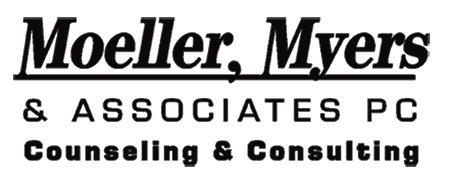




pact many people in major ways. All those people can be involved in supporting the right health solution.
Continuing care is essential for behavioral health concerns. It will help keep the patient on track with their recovery.
Many diagnoses require intense treatment followed by a longer period of continuing care. Successfully following the long-term recommendations will lead to a full recovery.
Moeller, Myers & Associates PC has 3 Certified Trauma Specialists providing the best trauma treatment currently available. There are only 400 specialists in the world with Moeller, Myers & Associates providing 3 of them right here in the Sauk Valley Area and the only specialists in the entire state of Illinois!
Moeller, Myers & Associates has a Certified Alcohol & Drug Counselor and the only Registered Play Therapist for children in the Sauk Valley. They are a group of 4 Licensed Clinical Professional Counselors and 4 Licensed Clinical Social Workers with a combined nine decades of experience in helping individuals, couples and families successfully manage their overall well-being, through life’s challenges and difficult transitions.